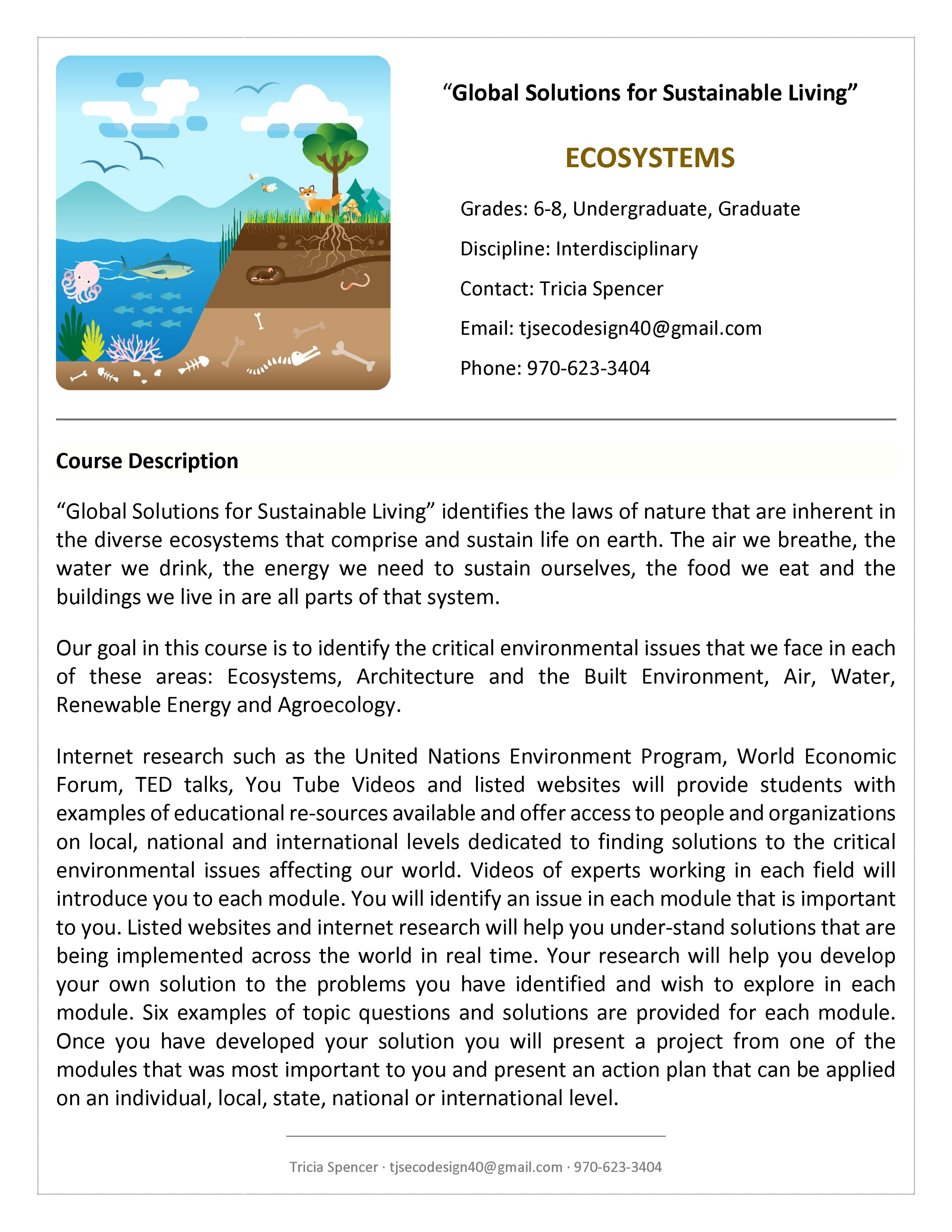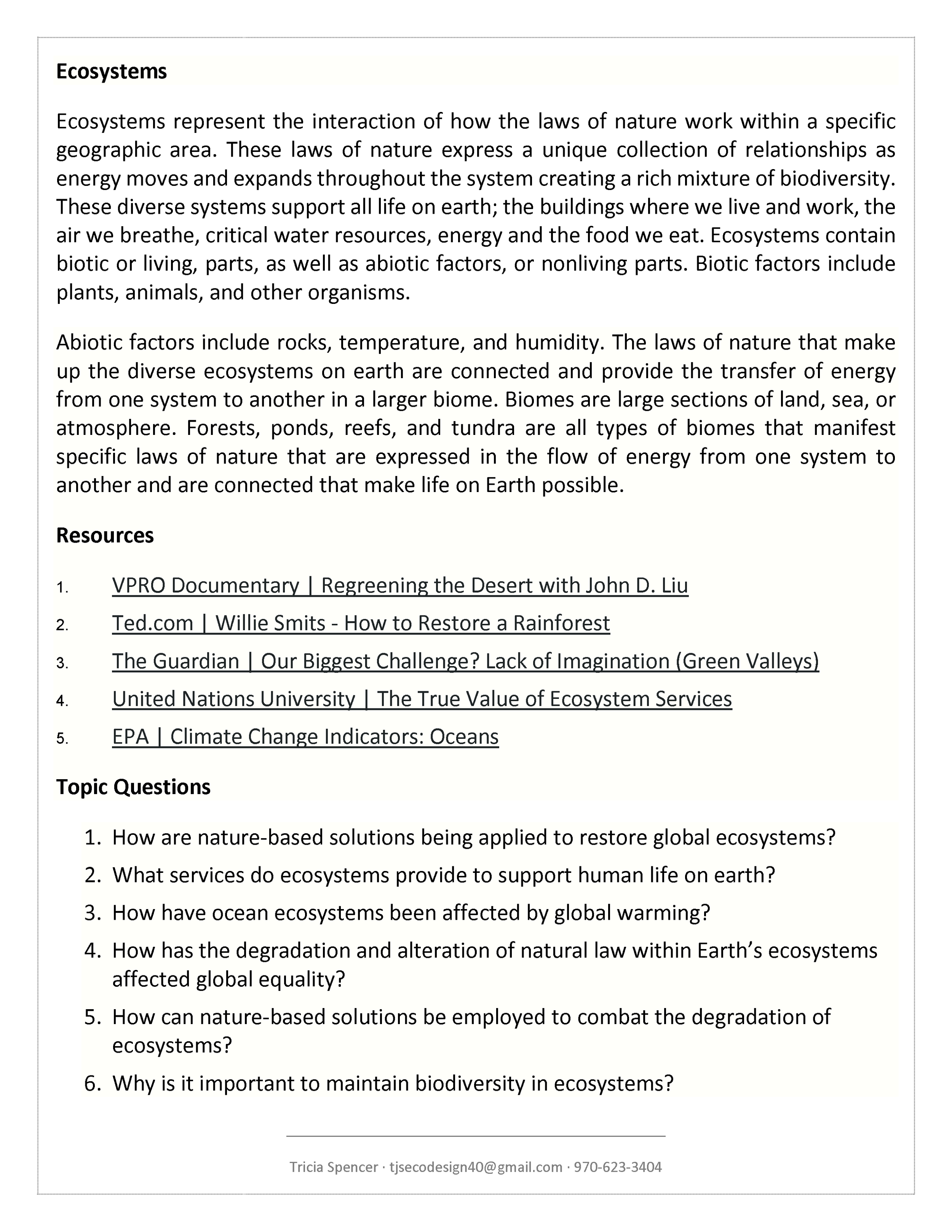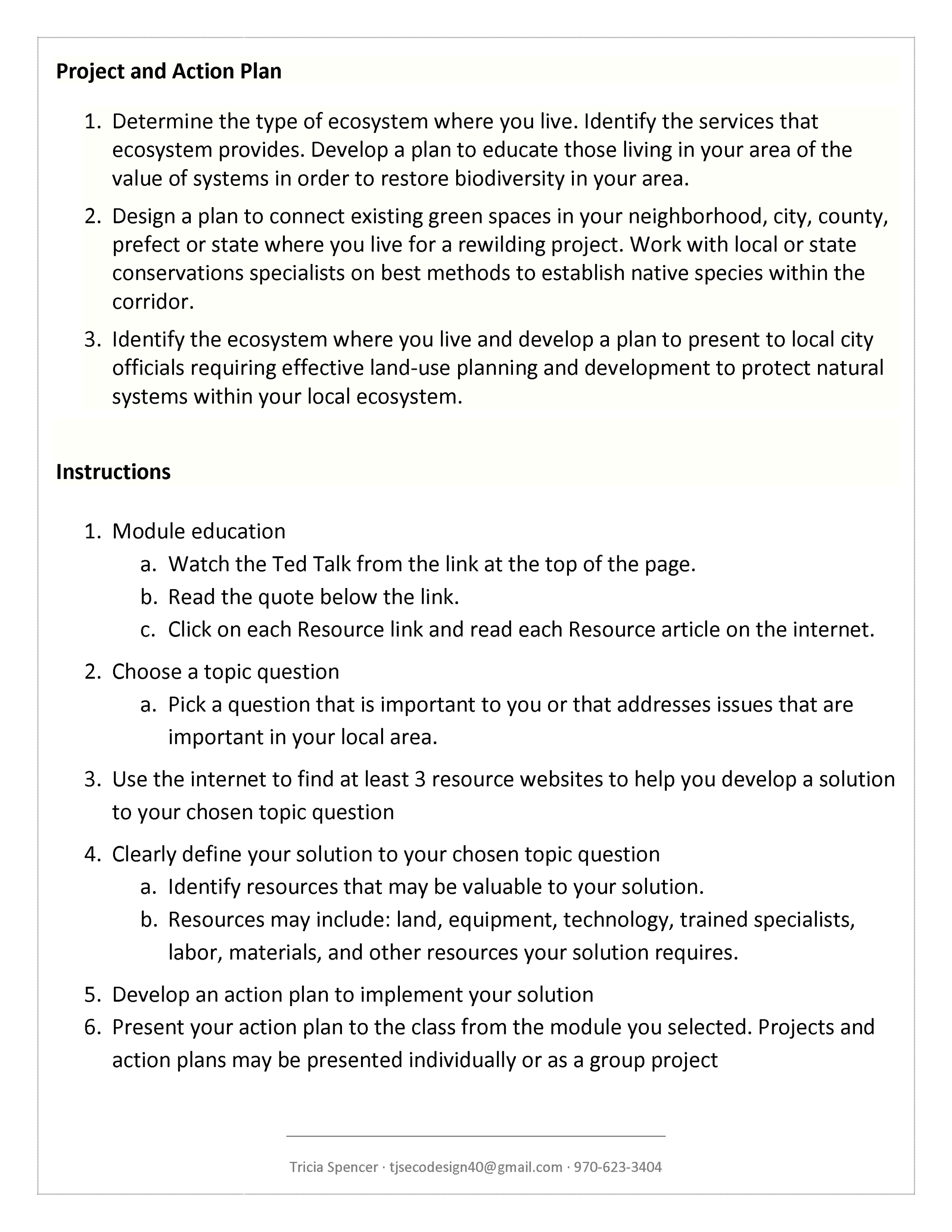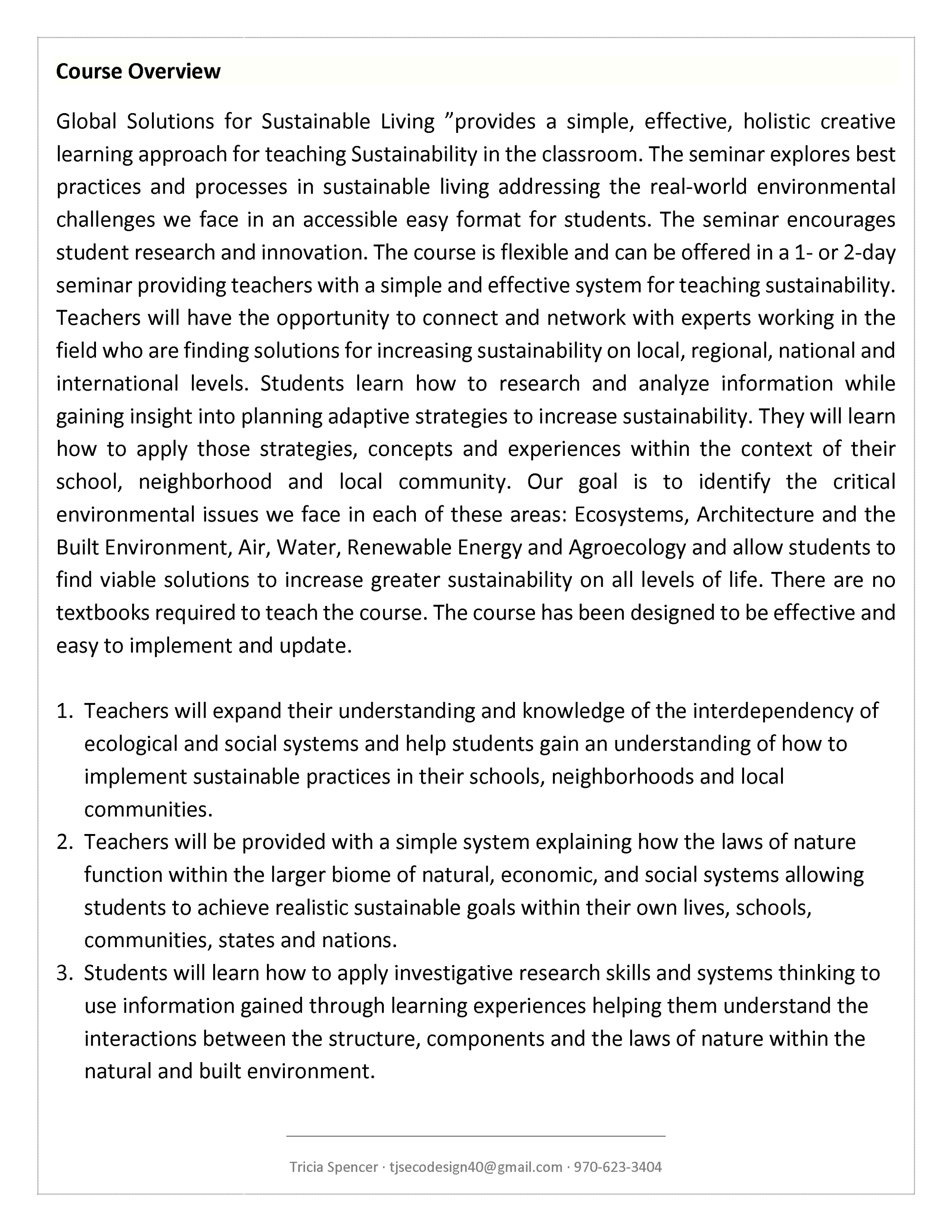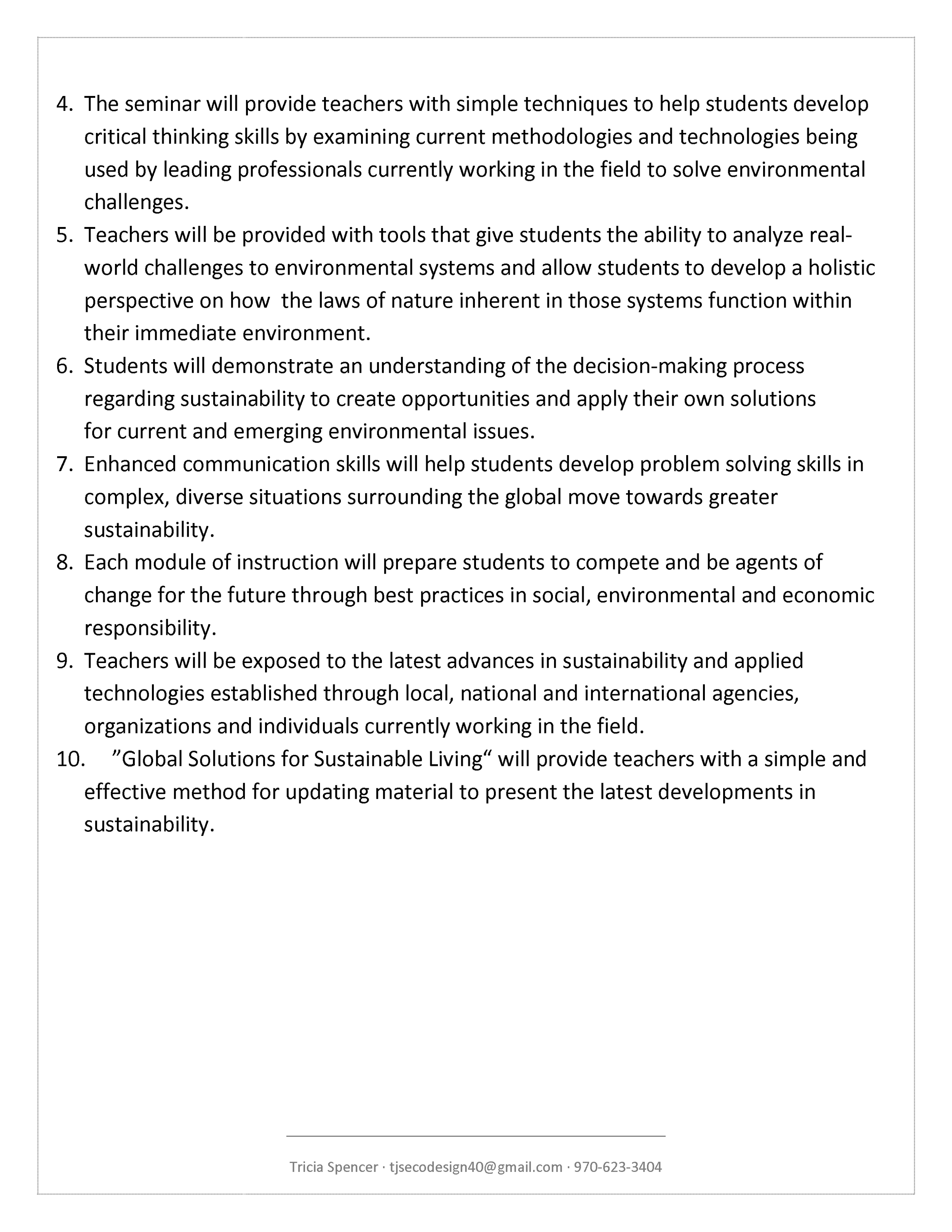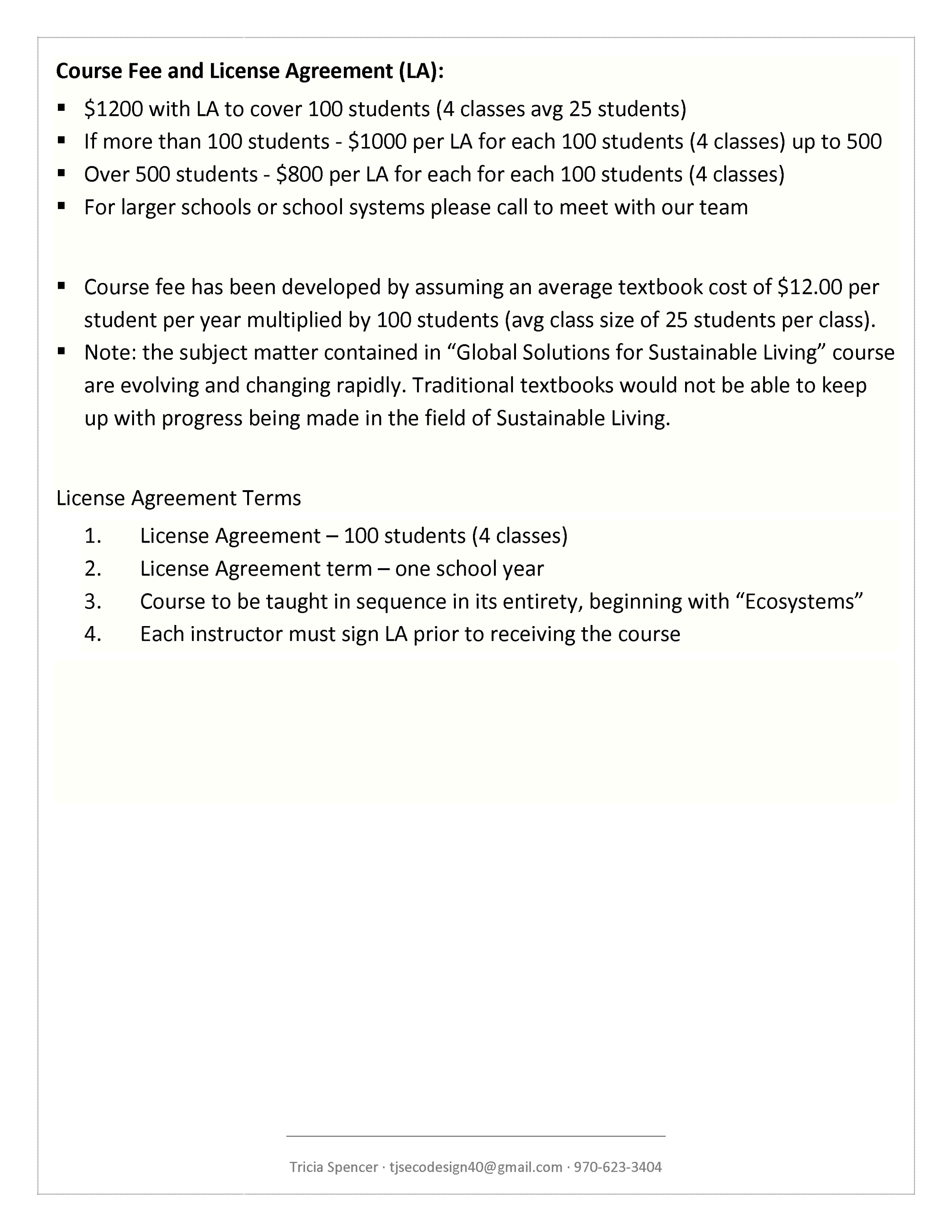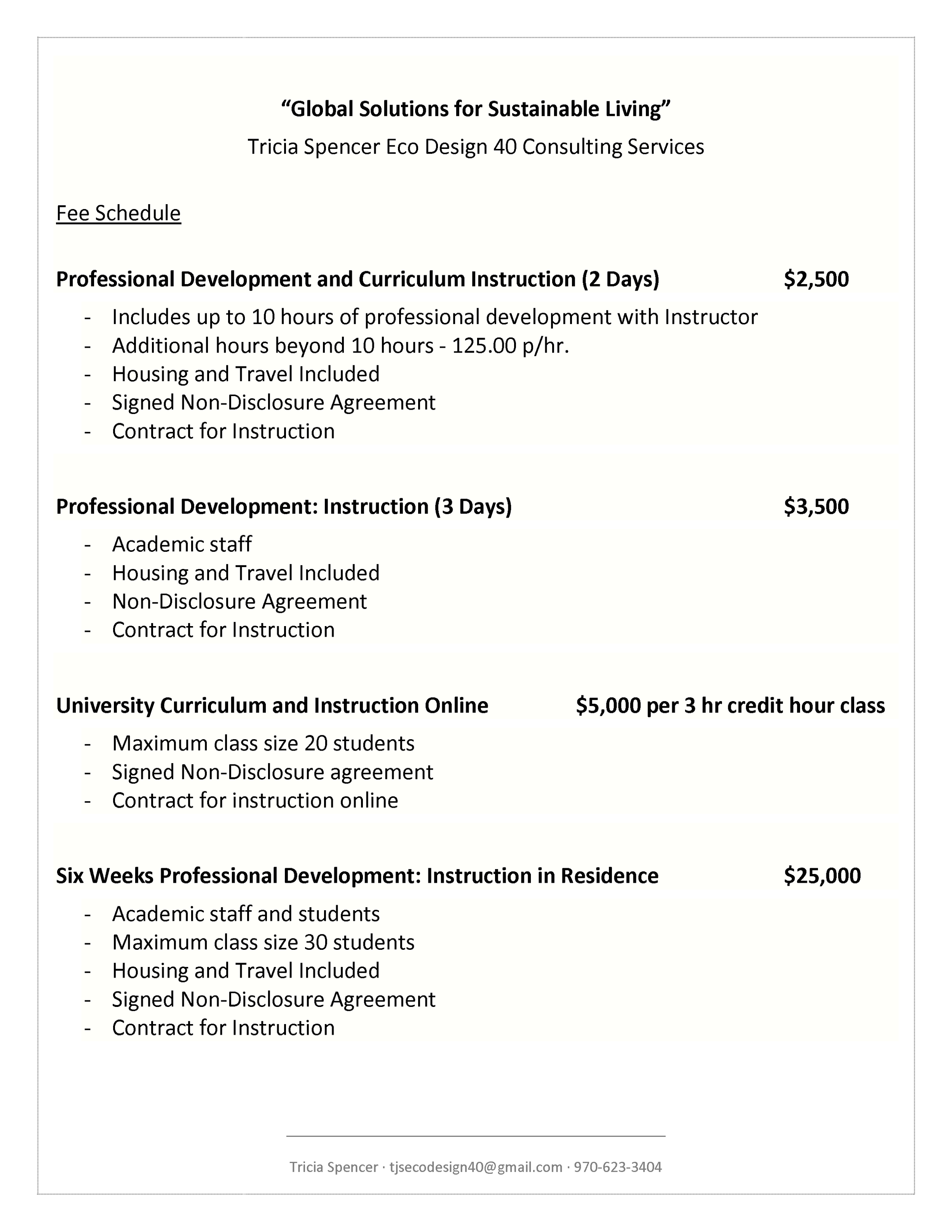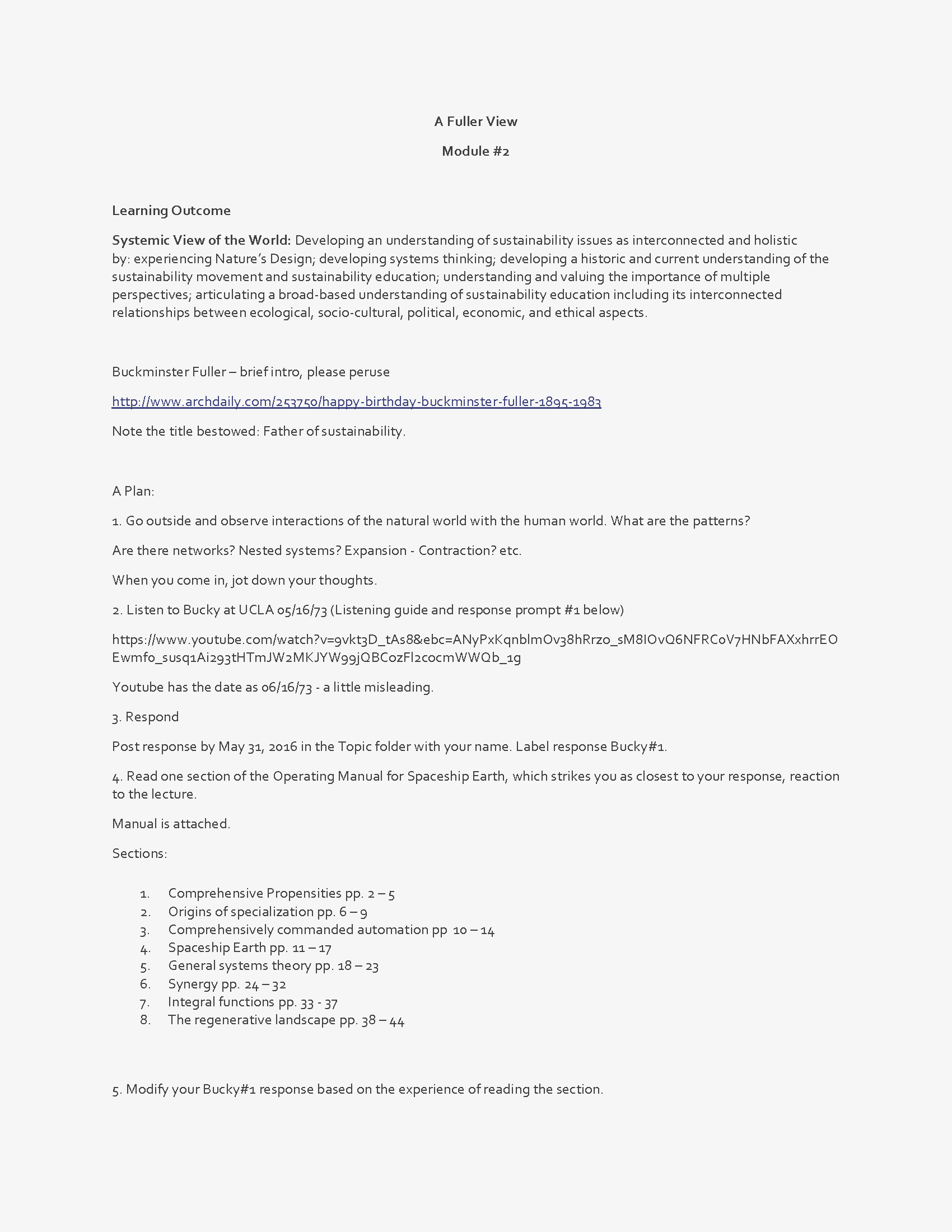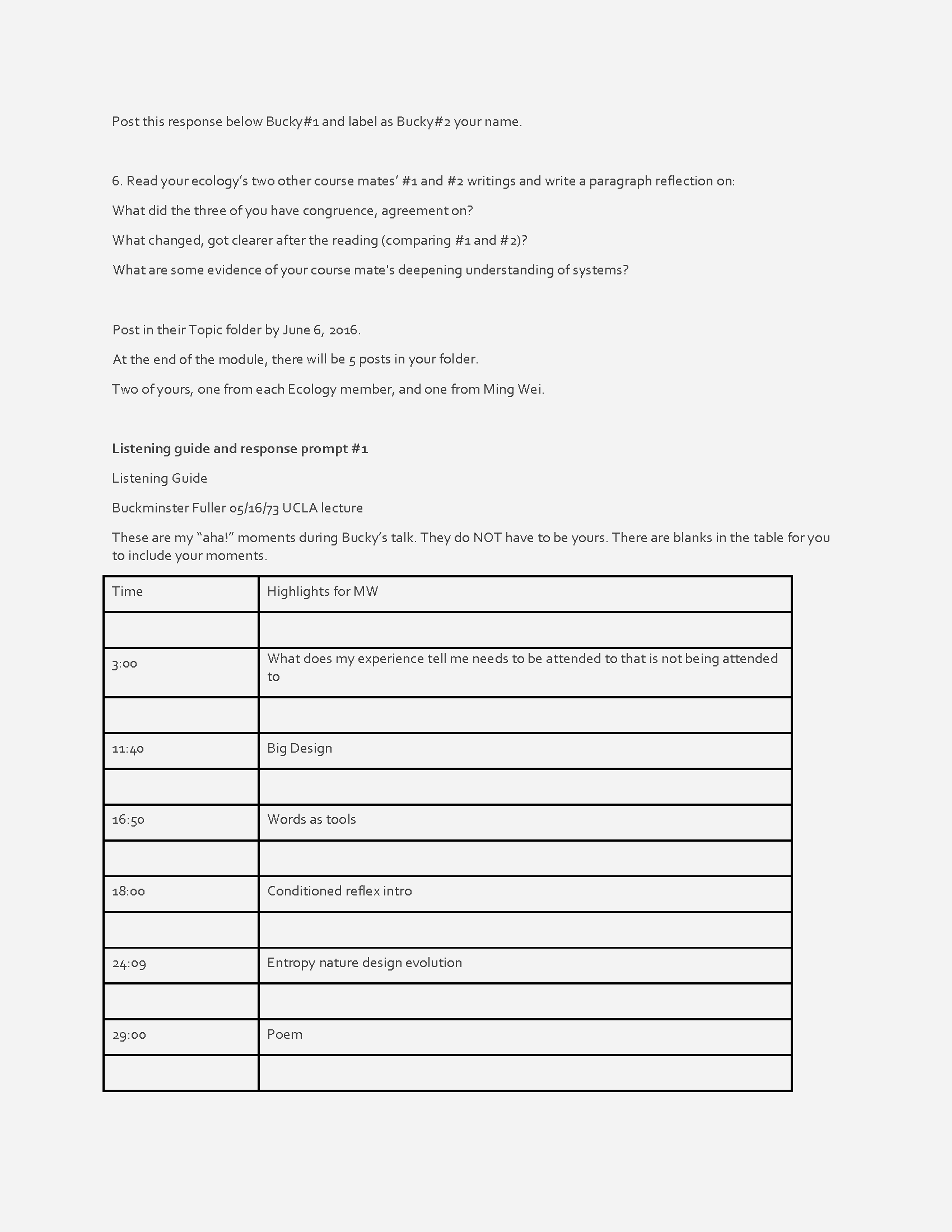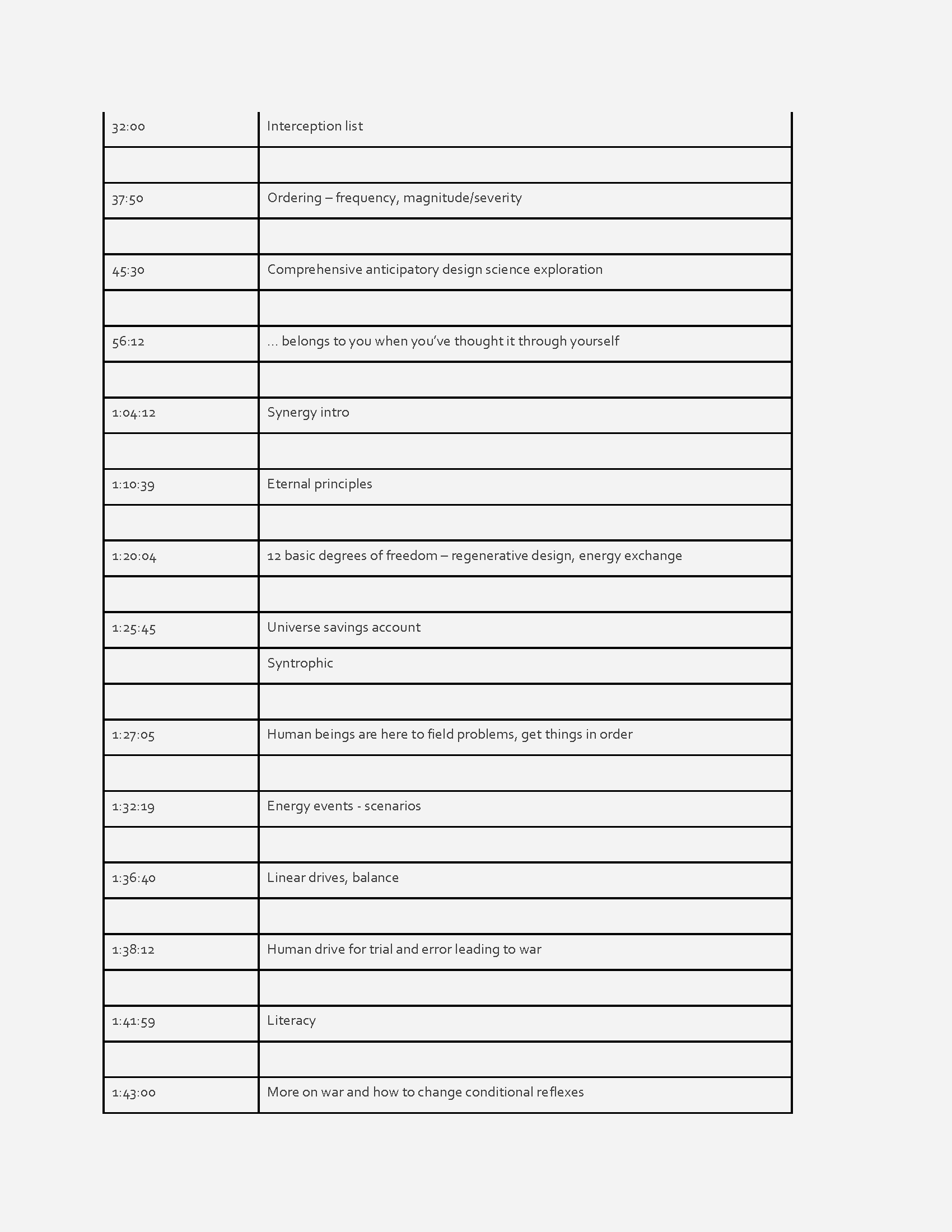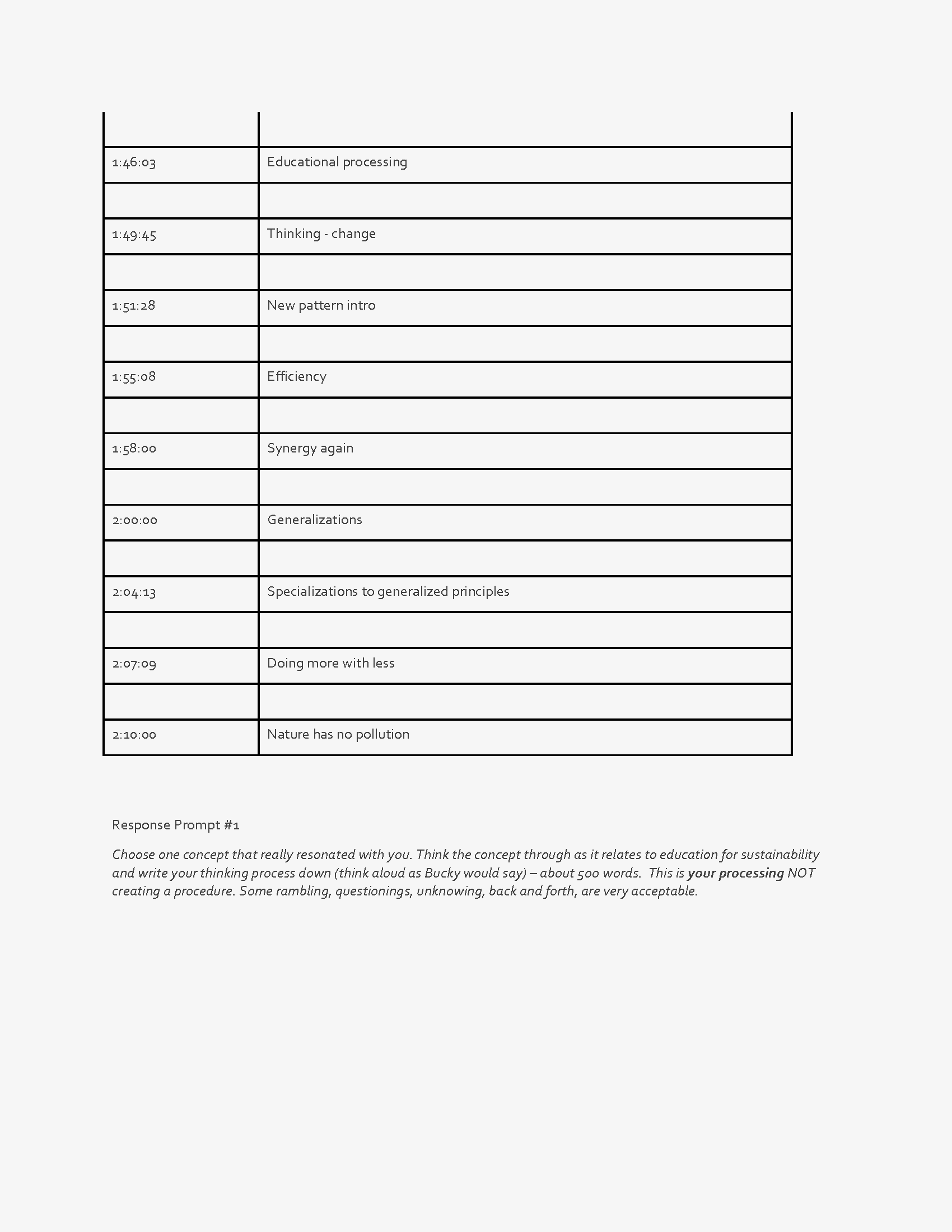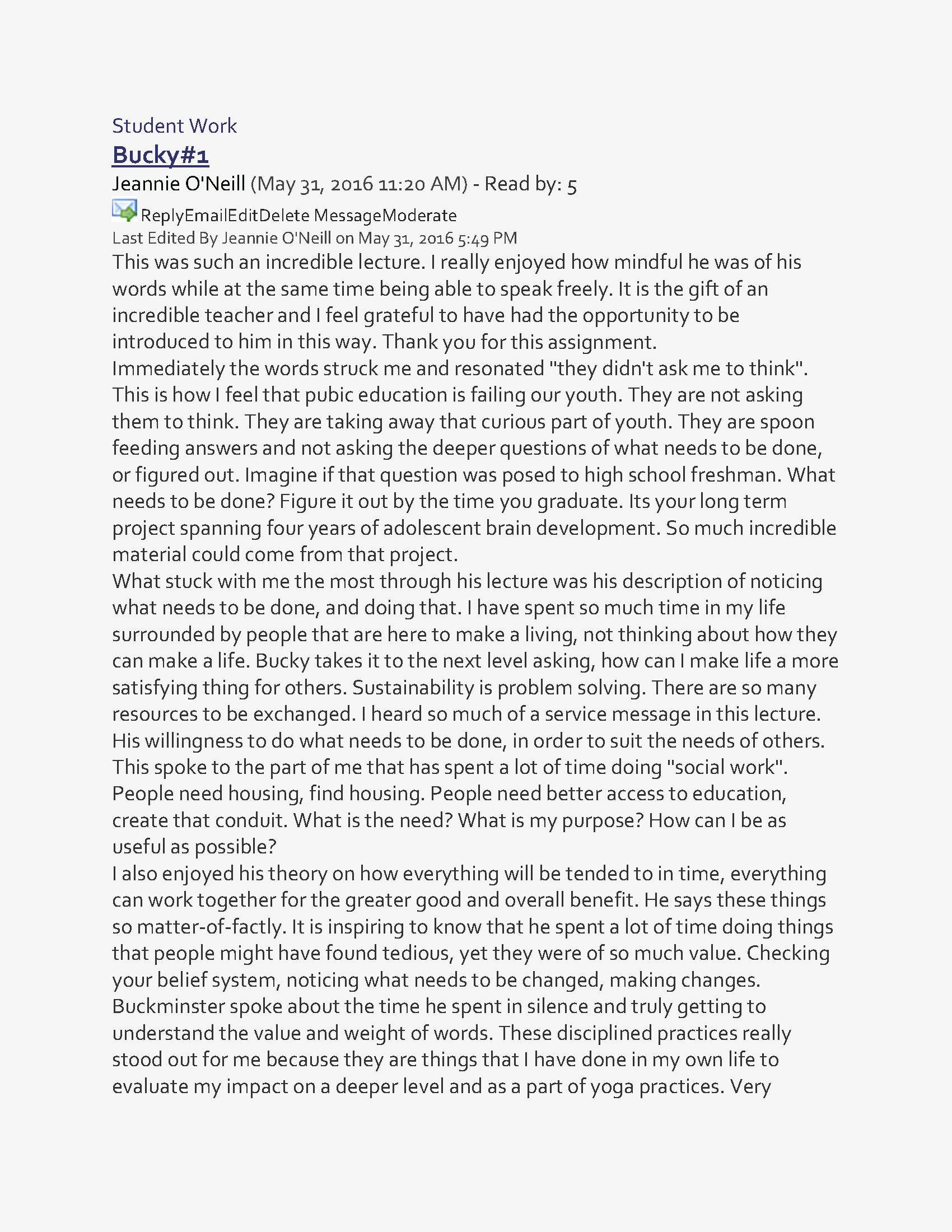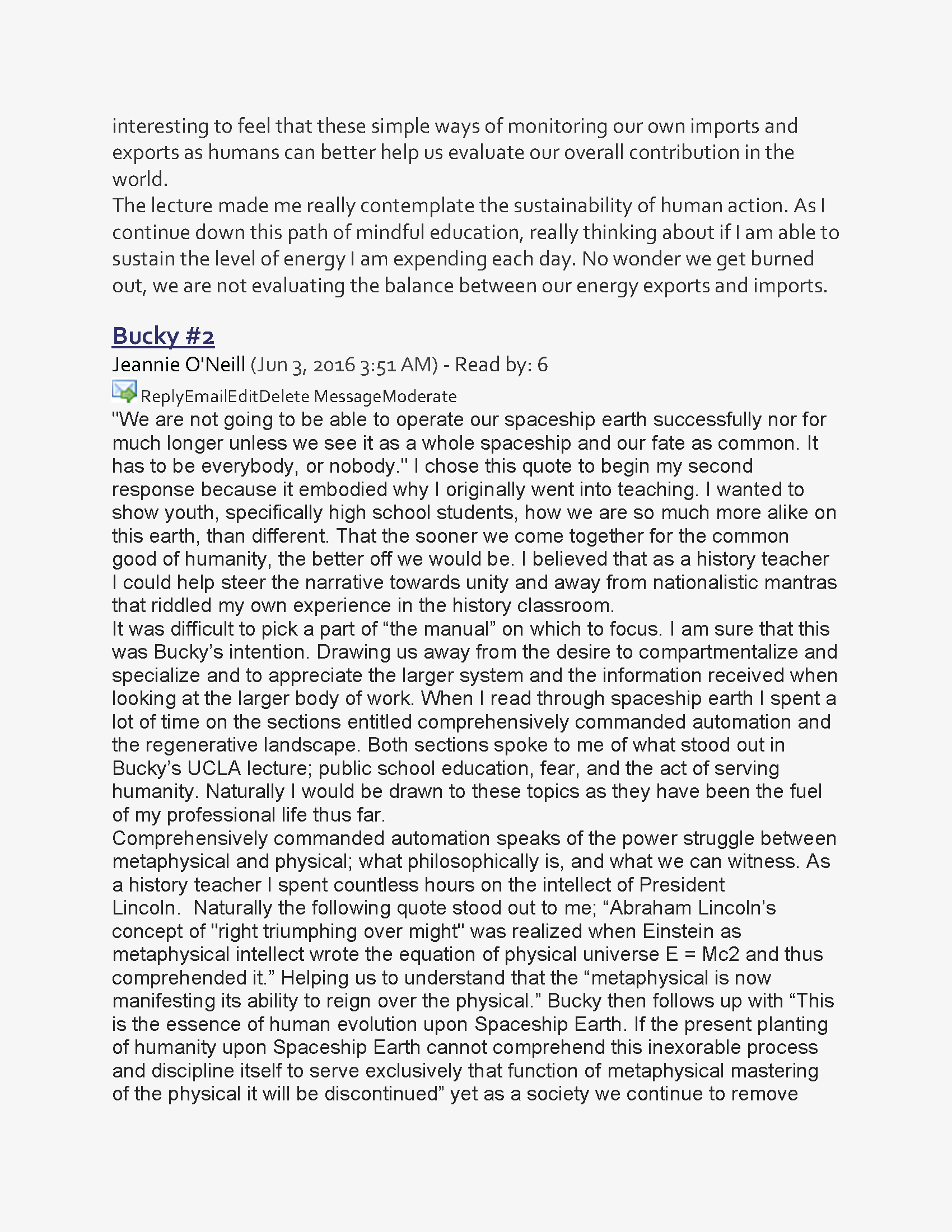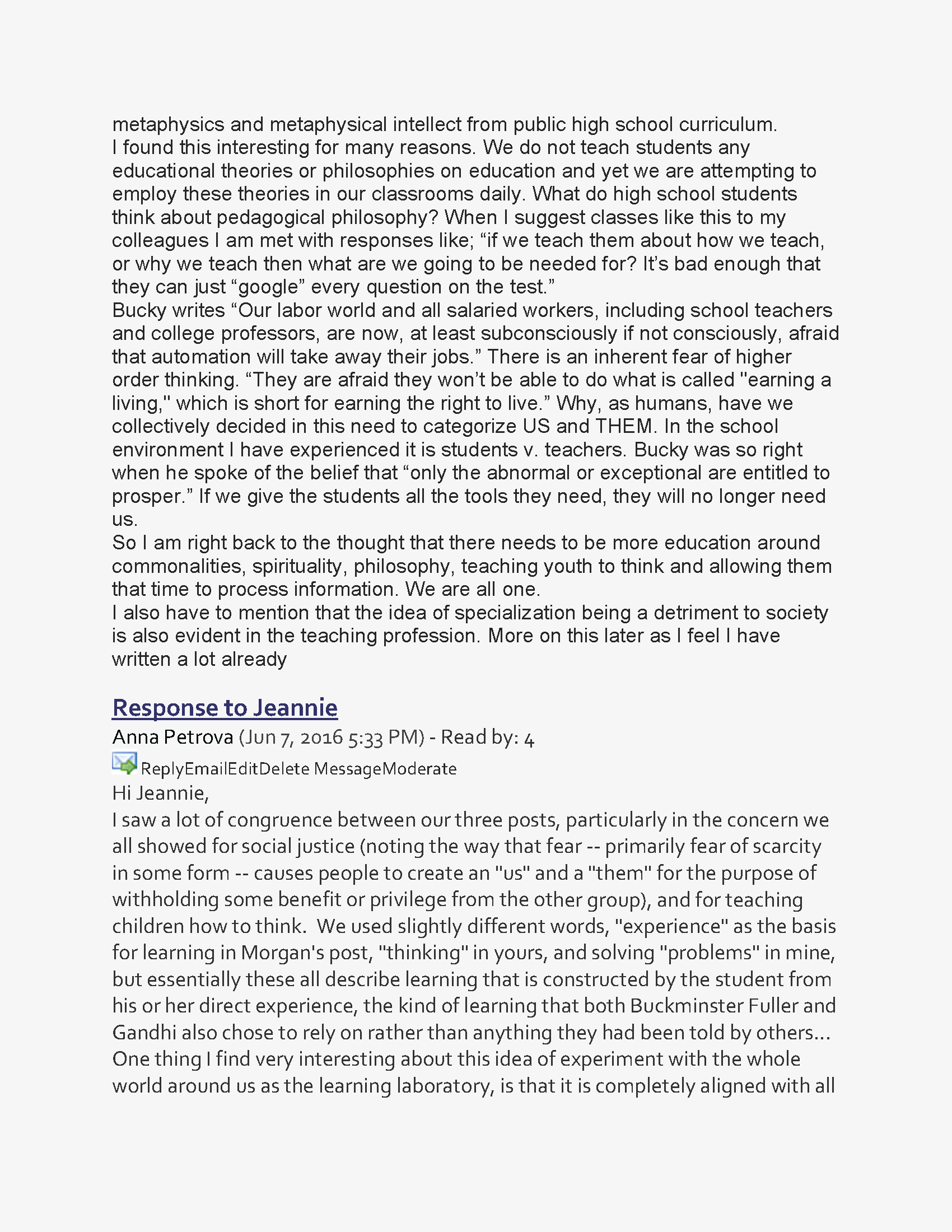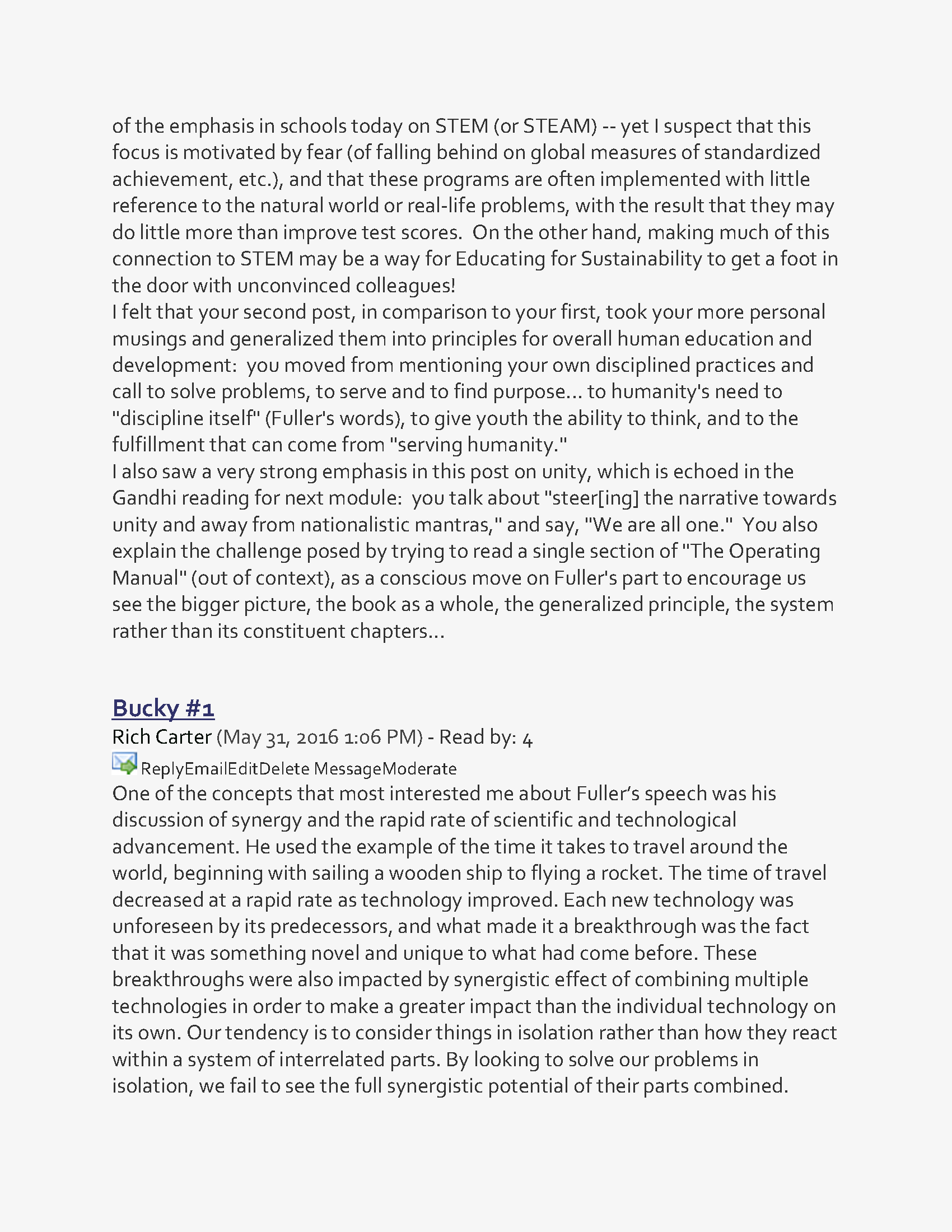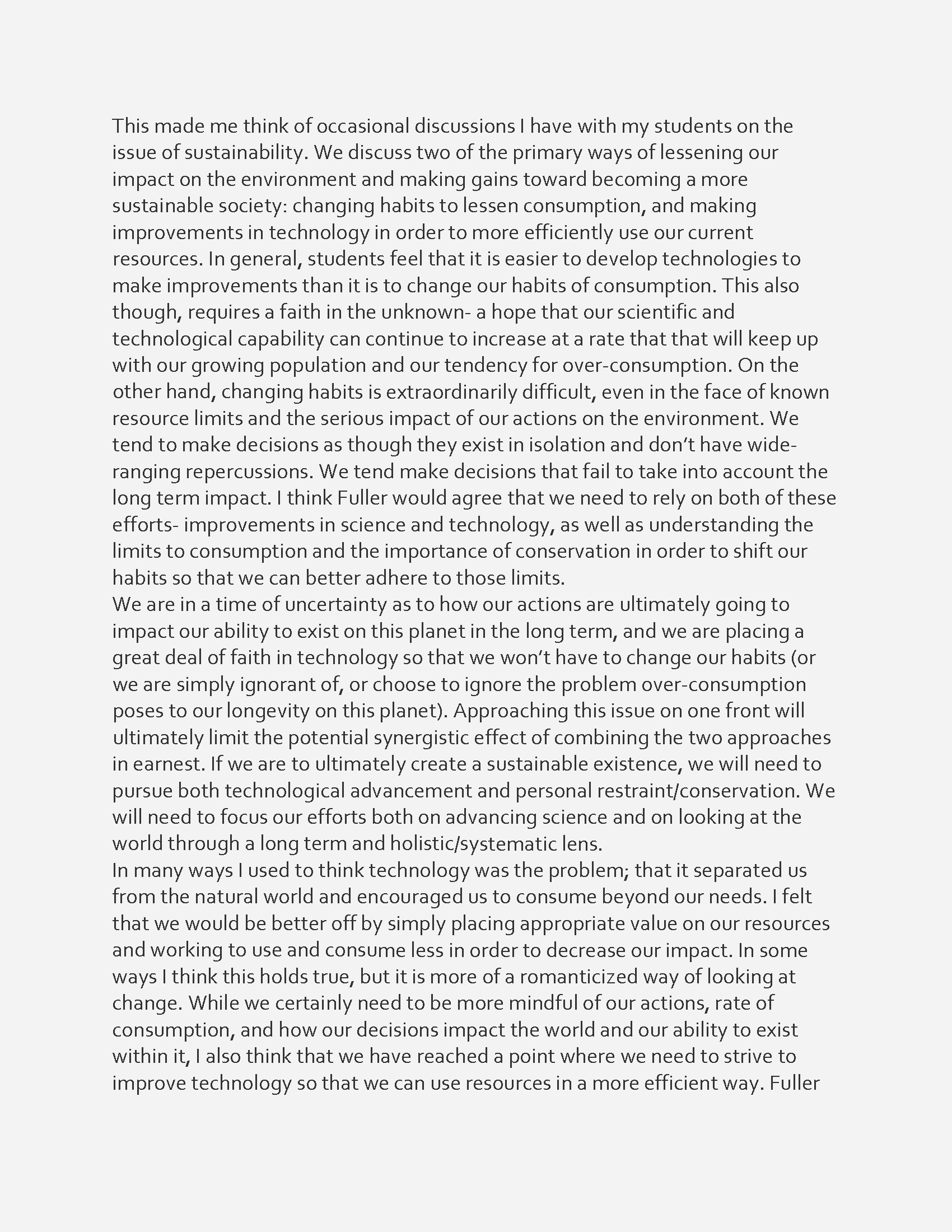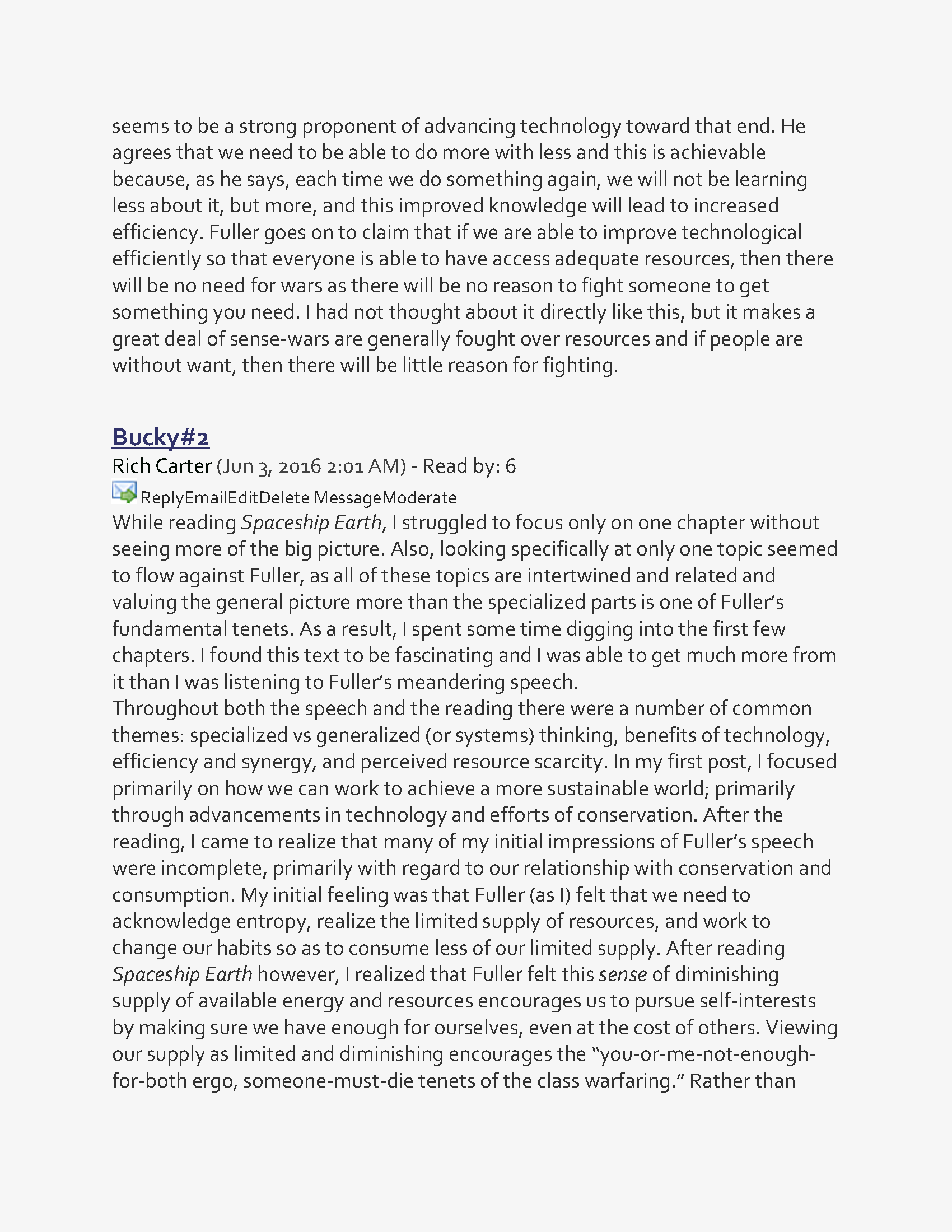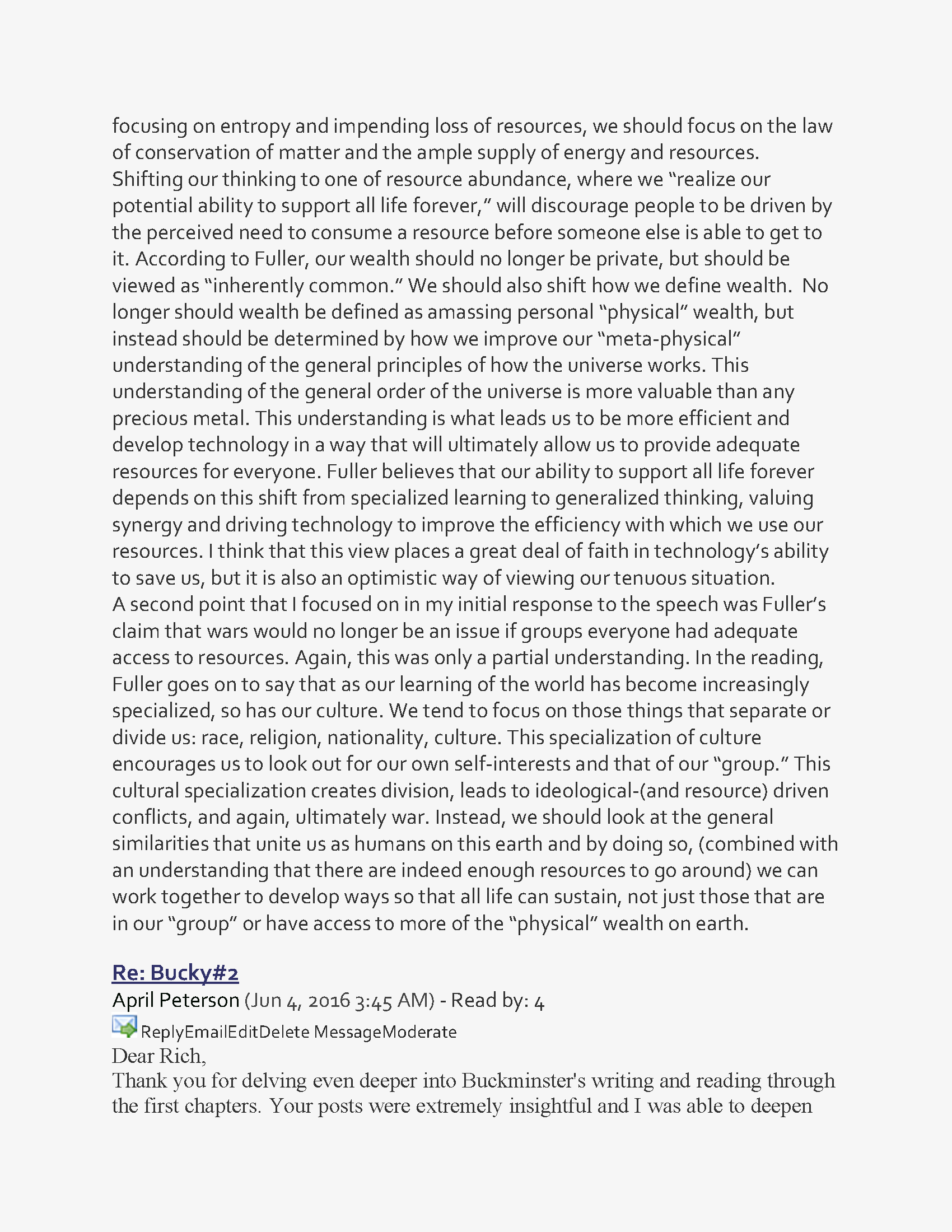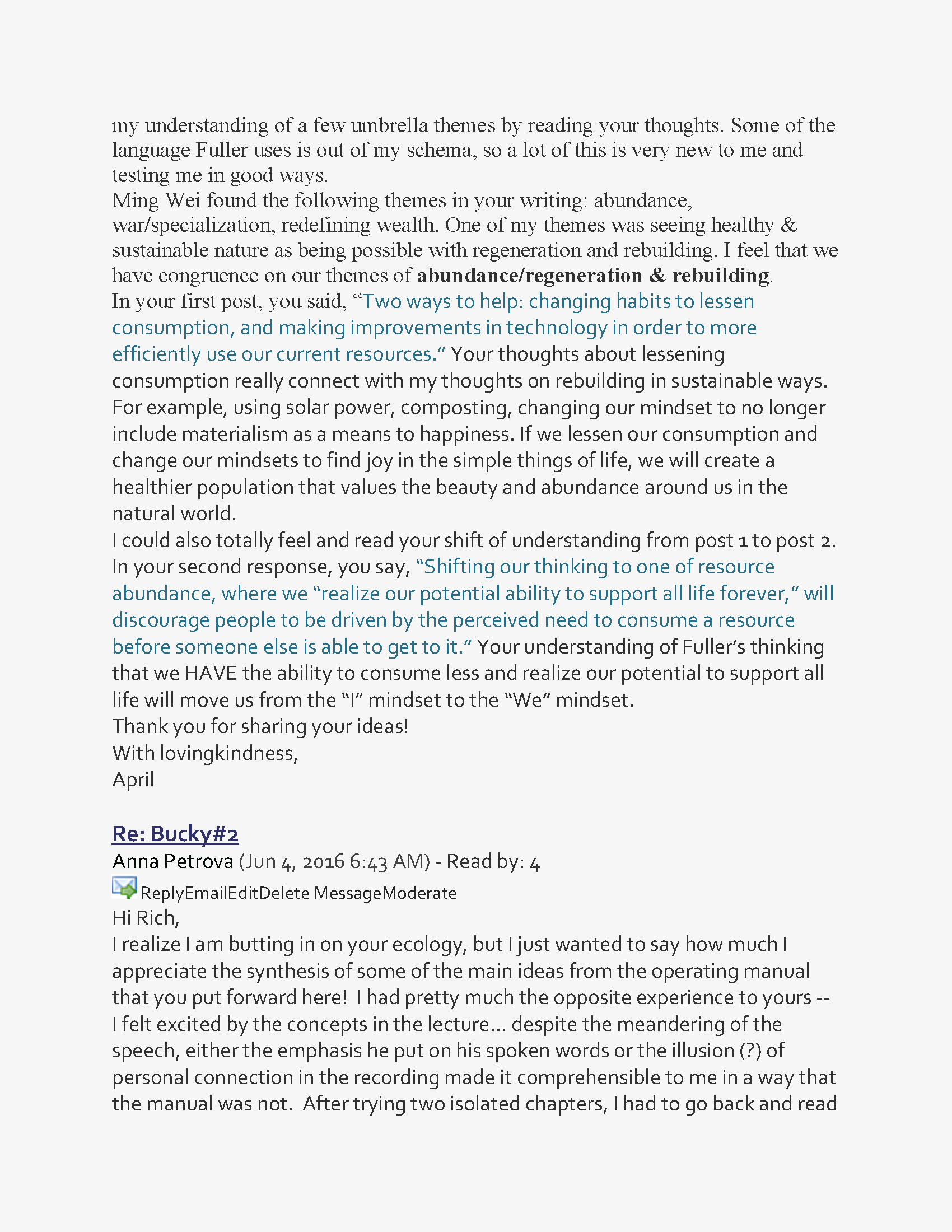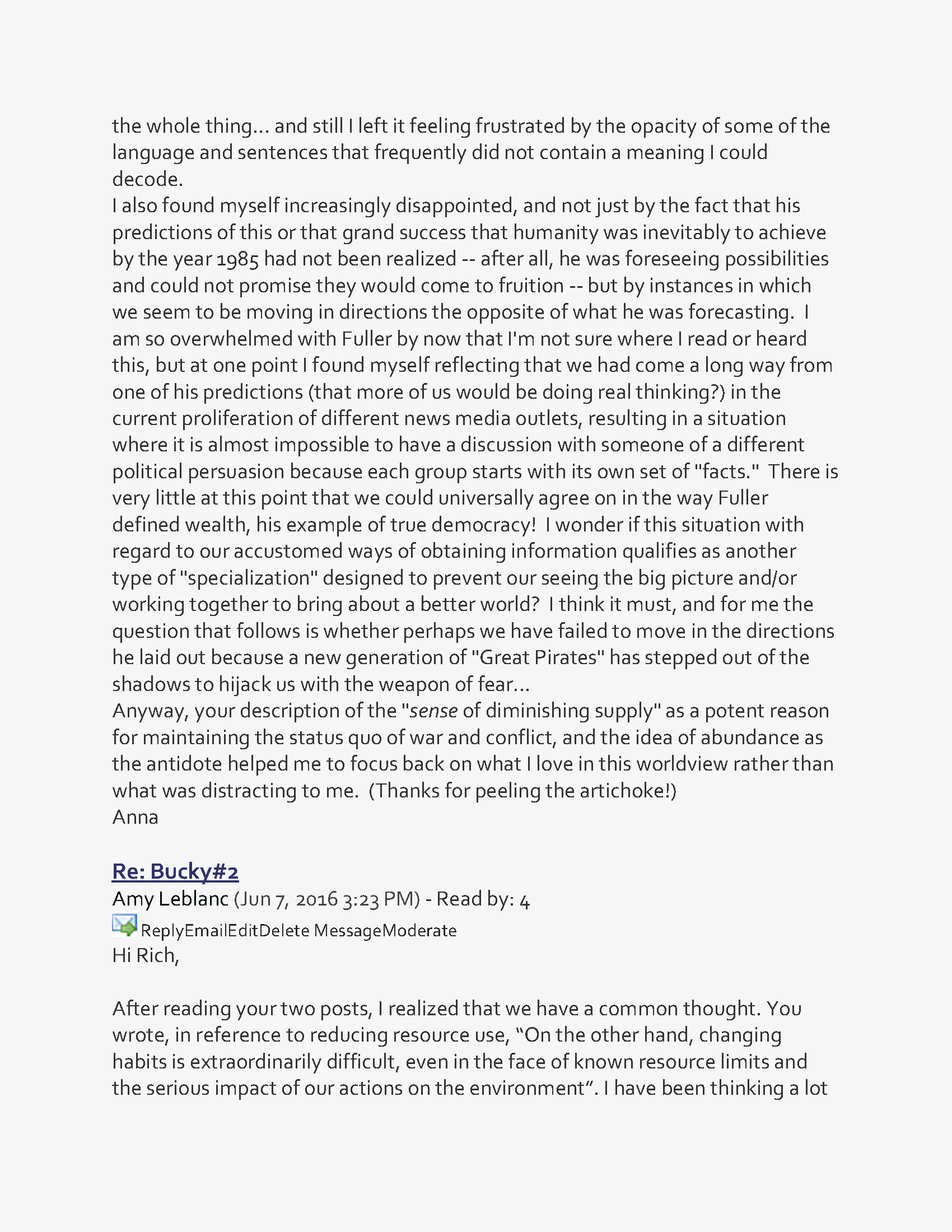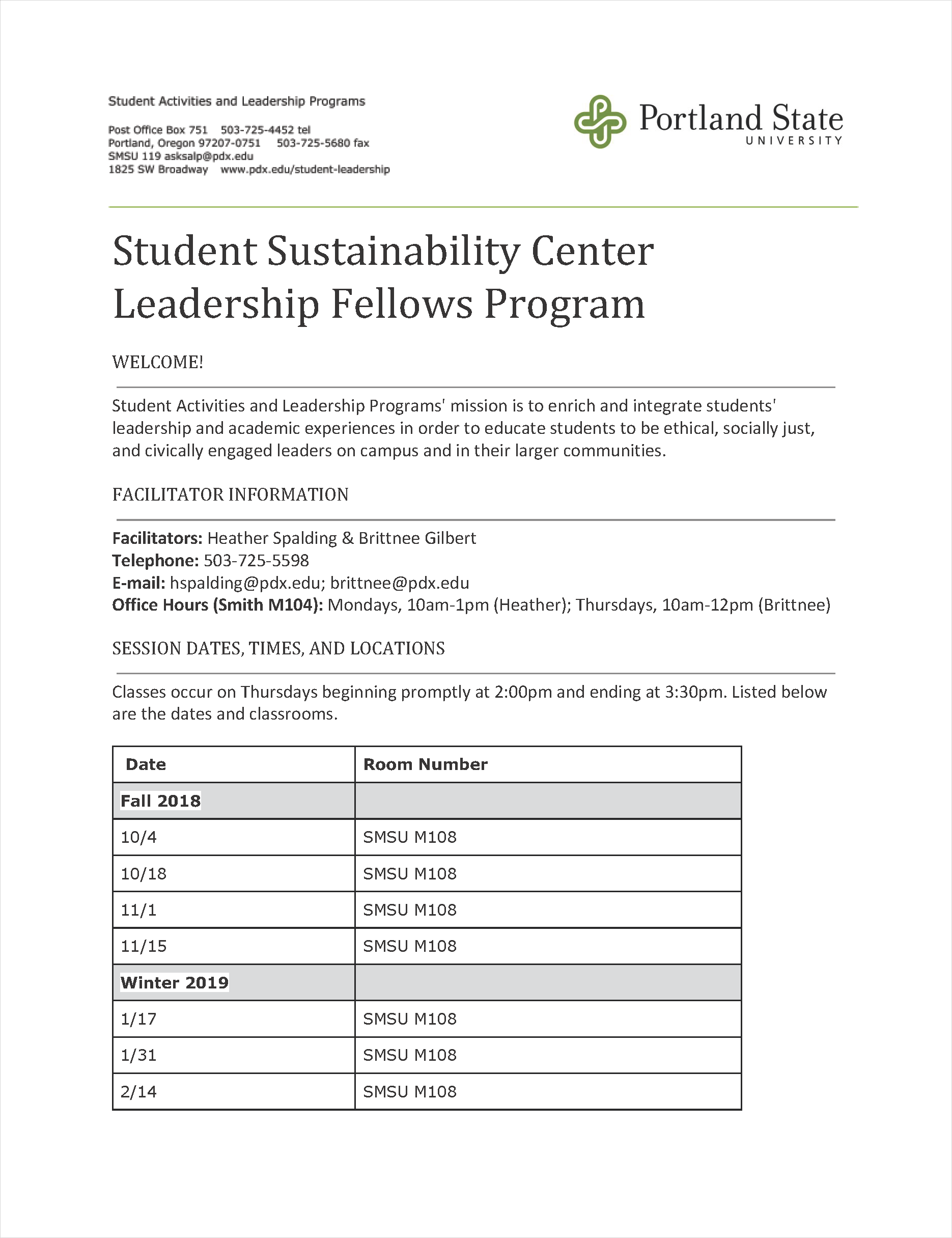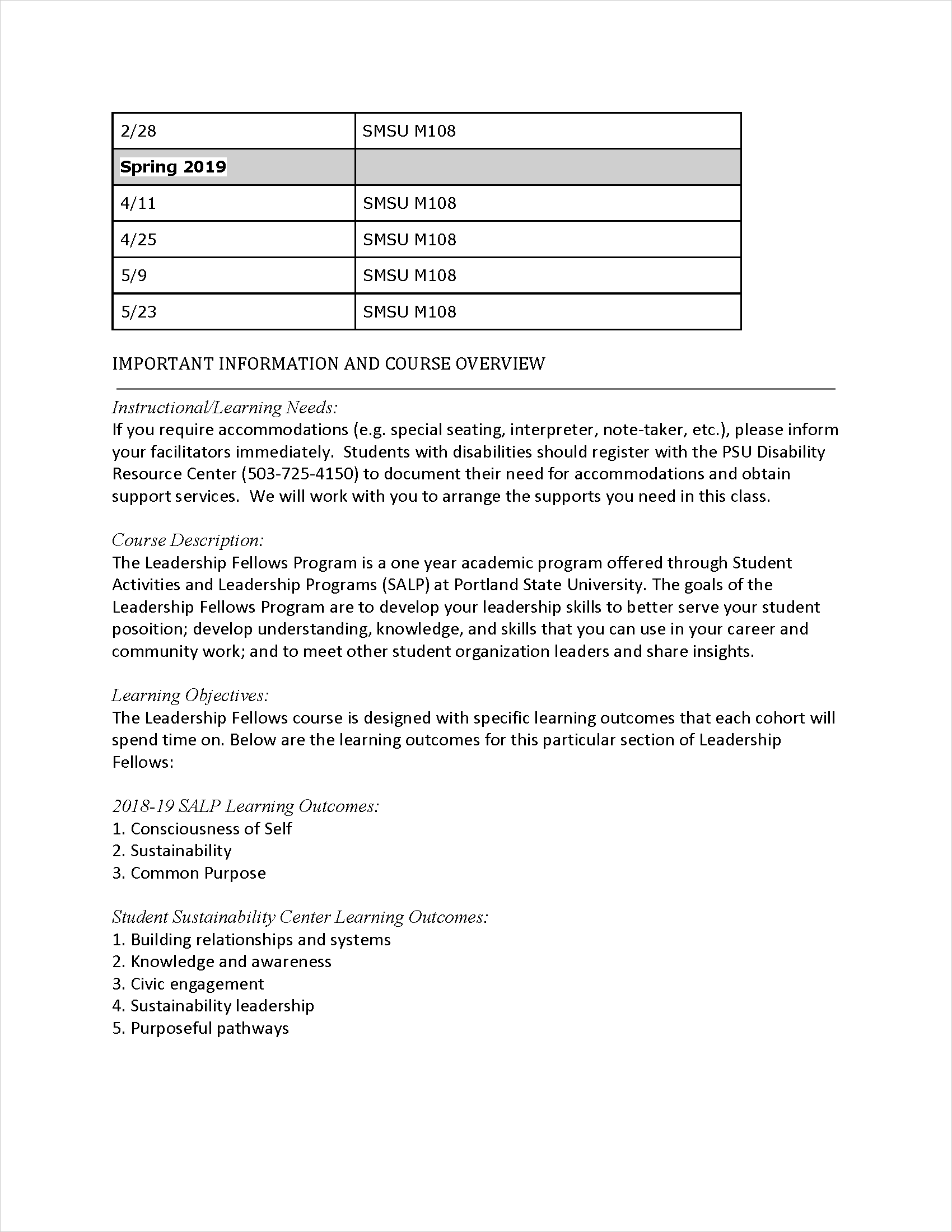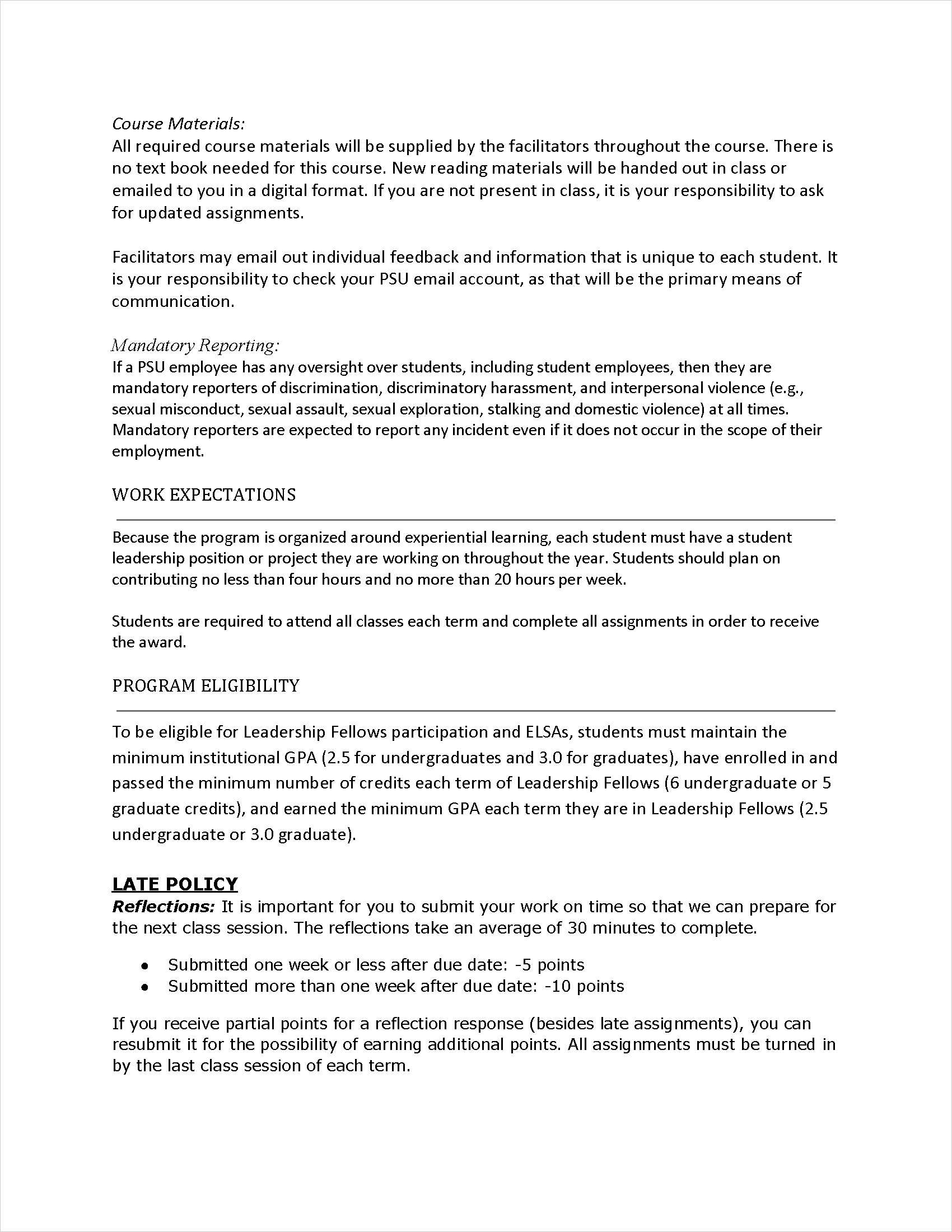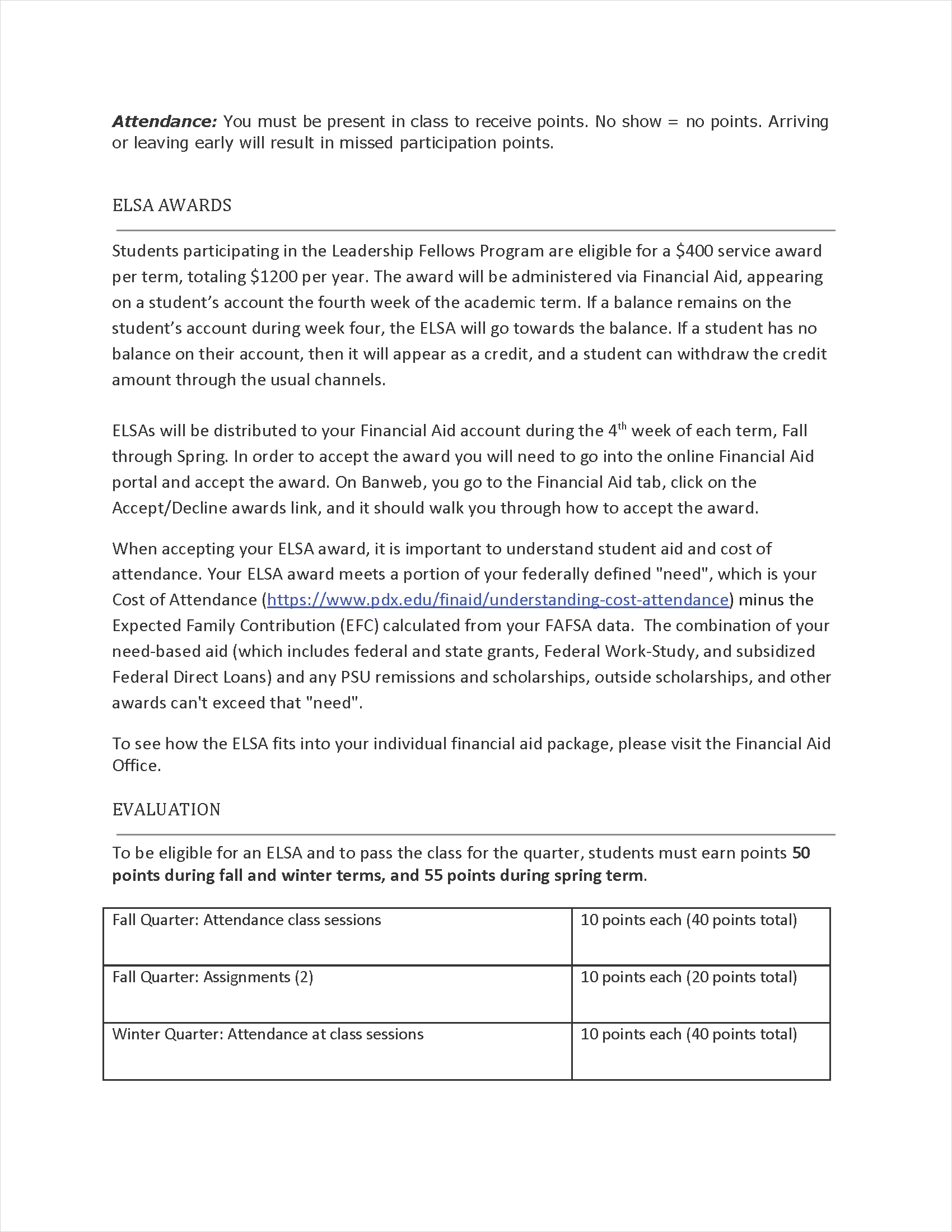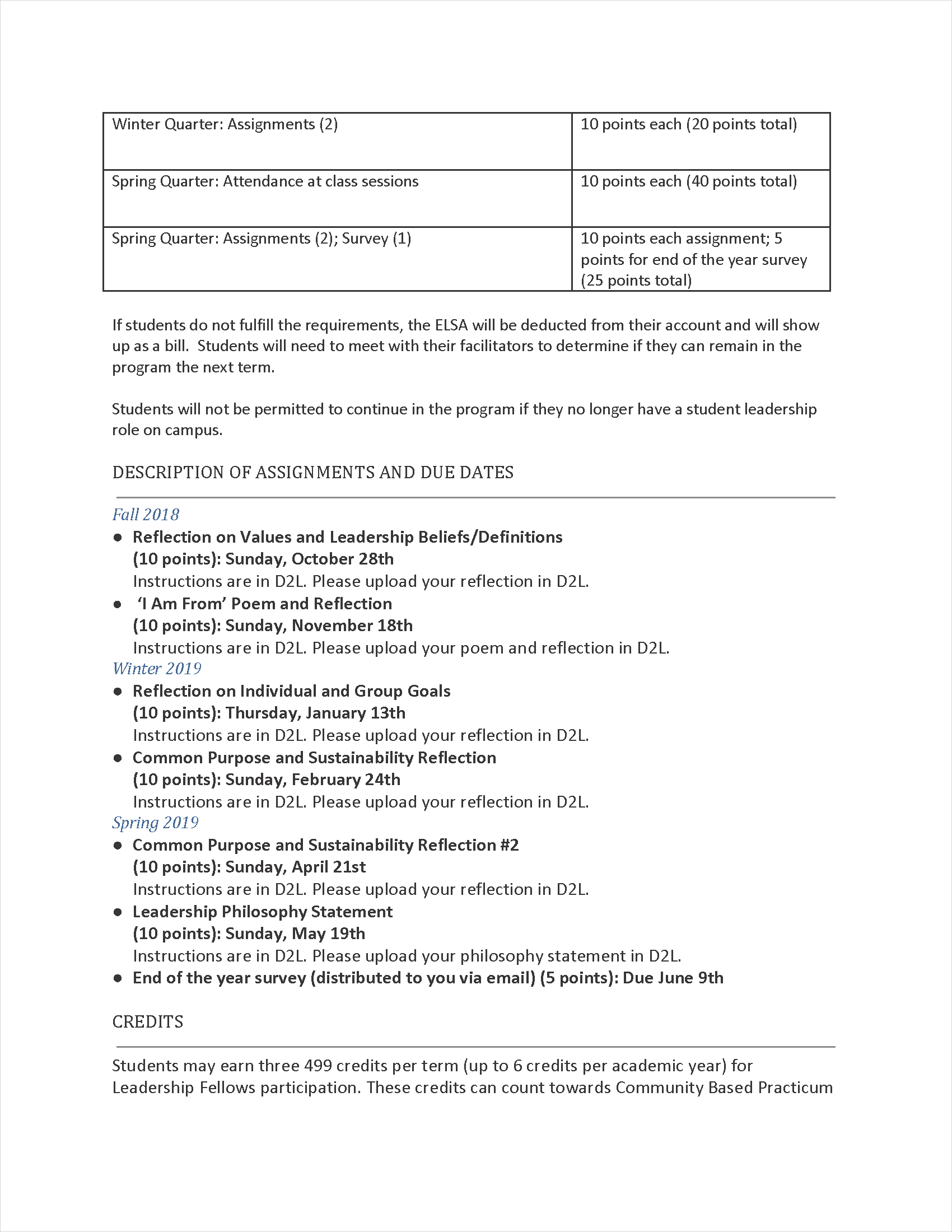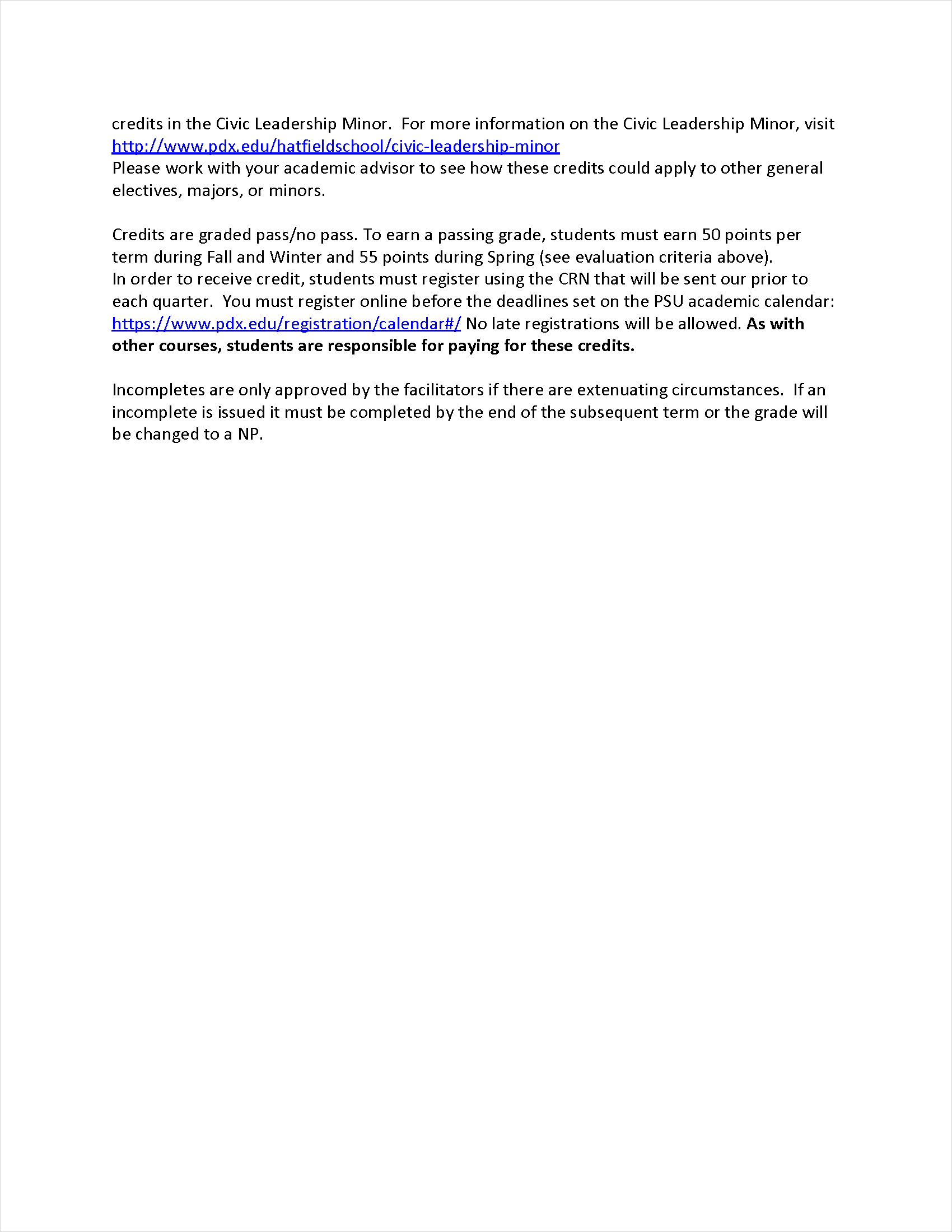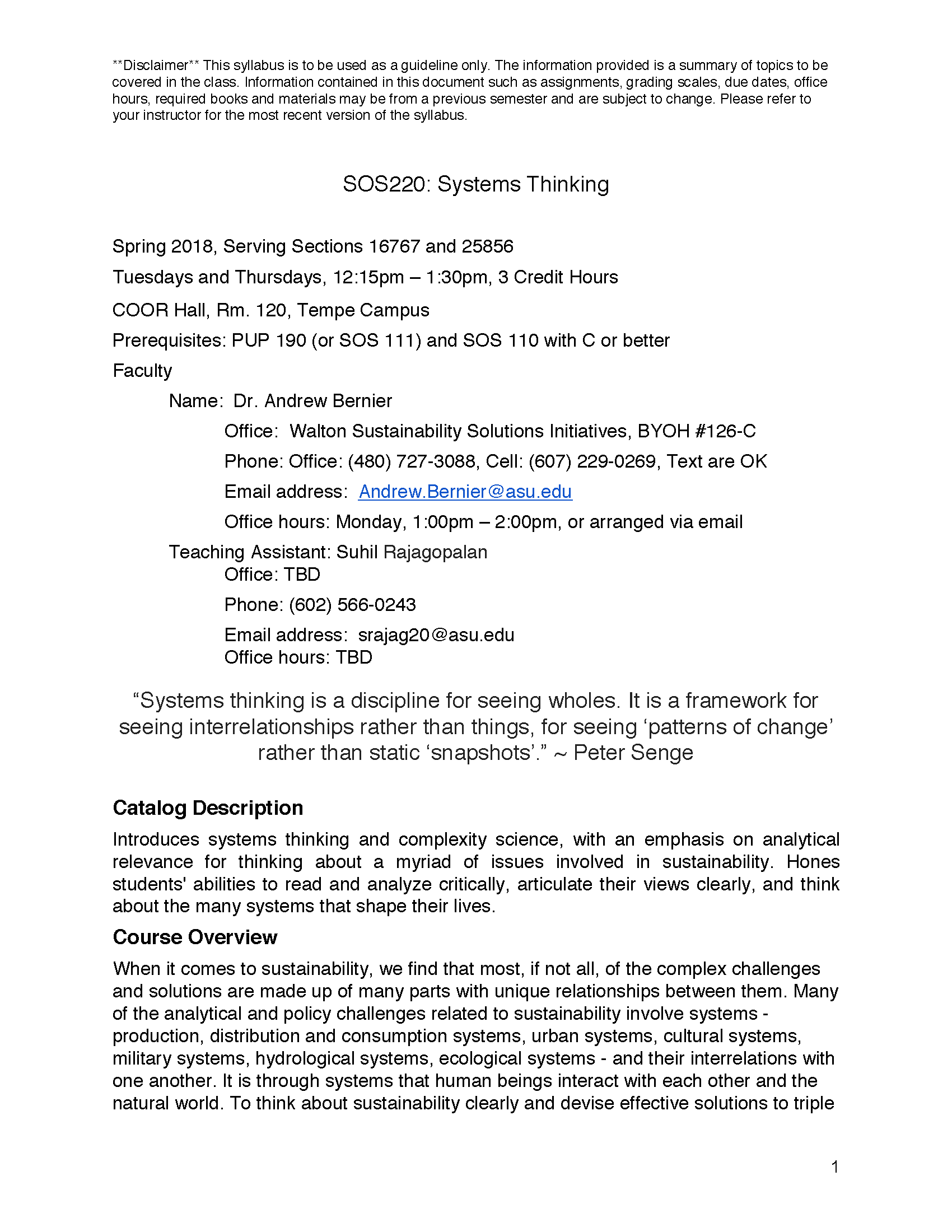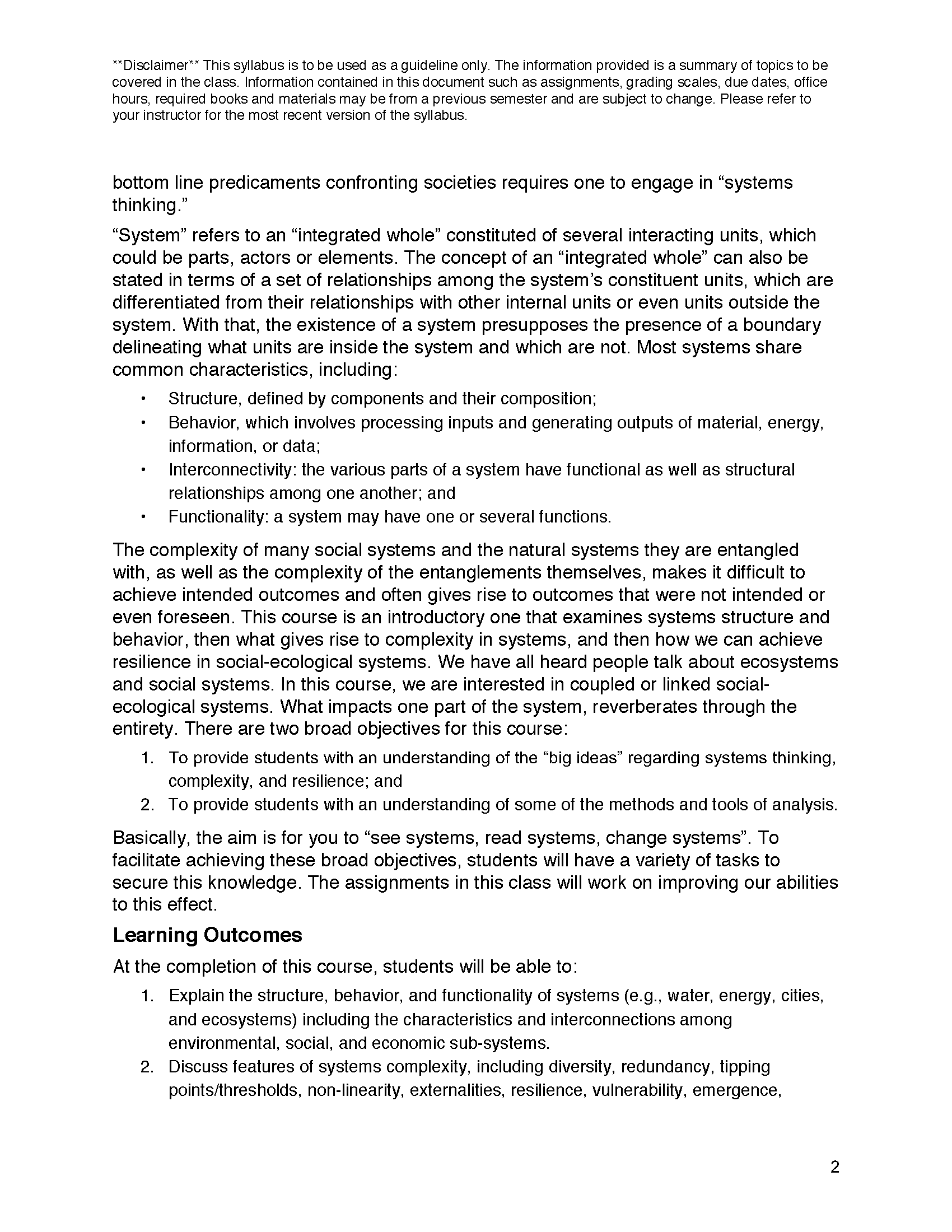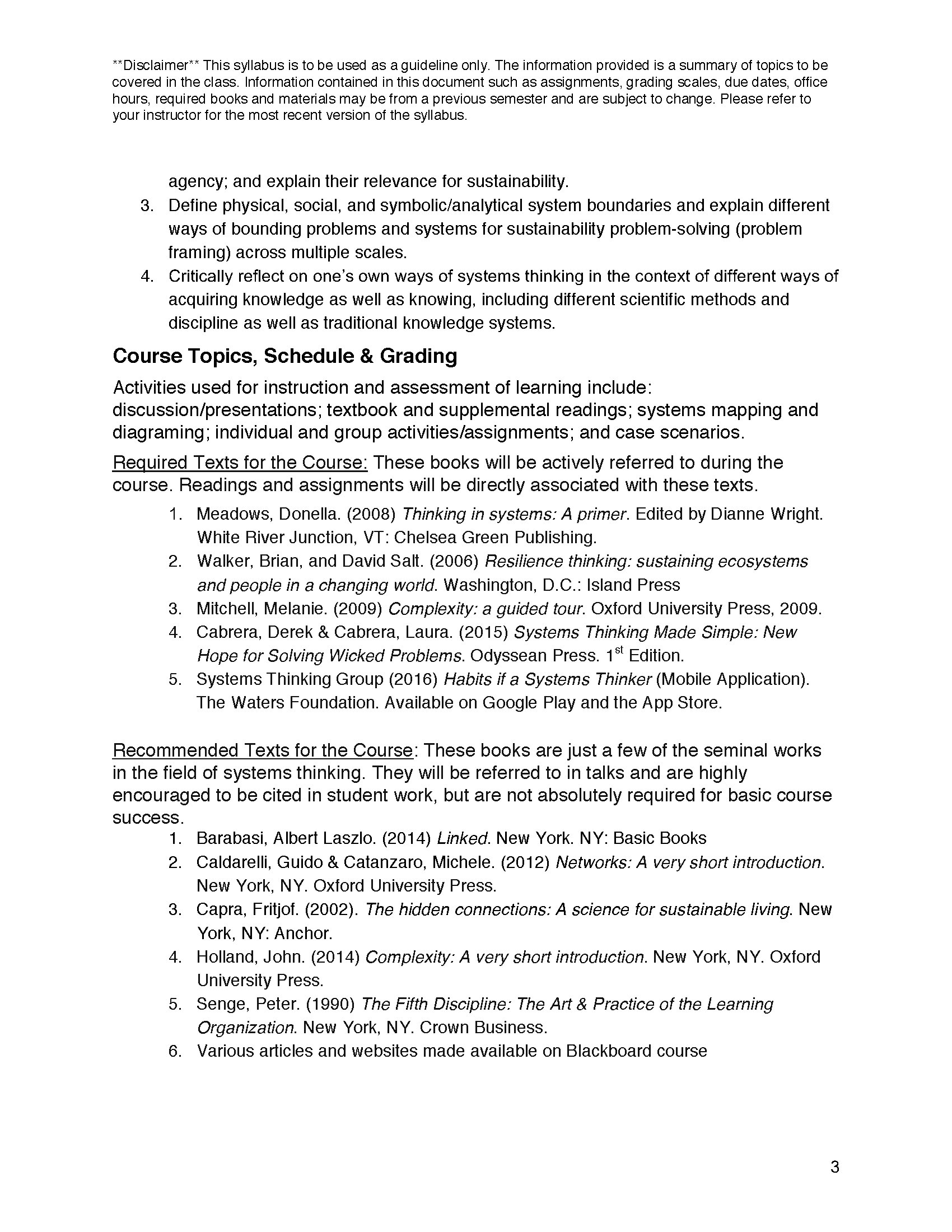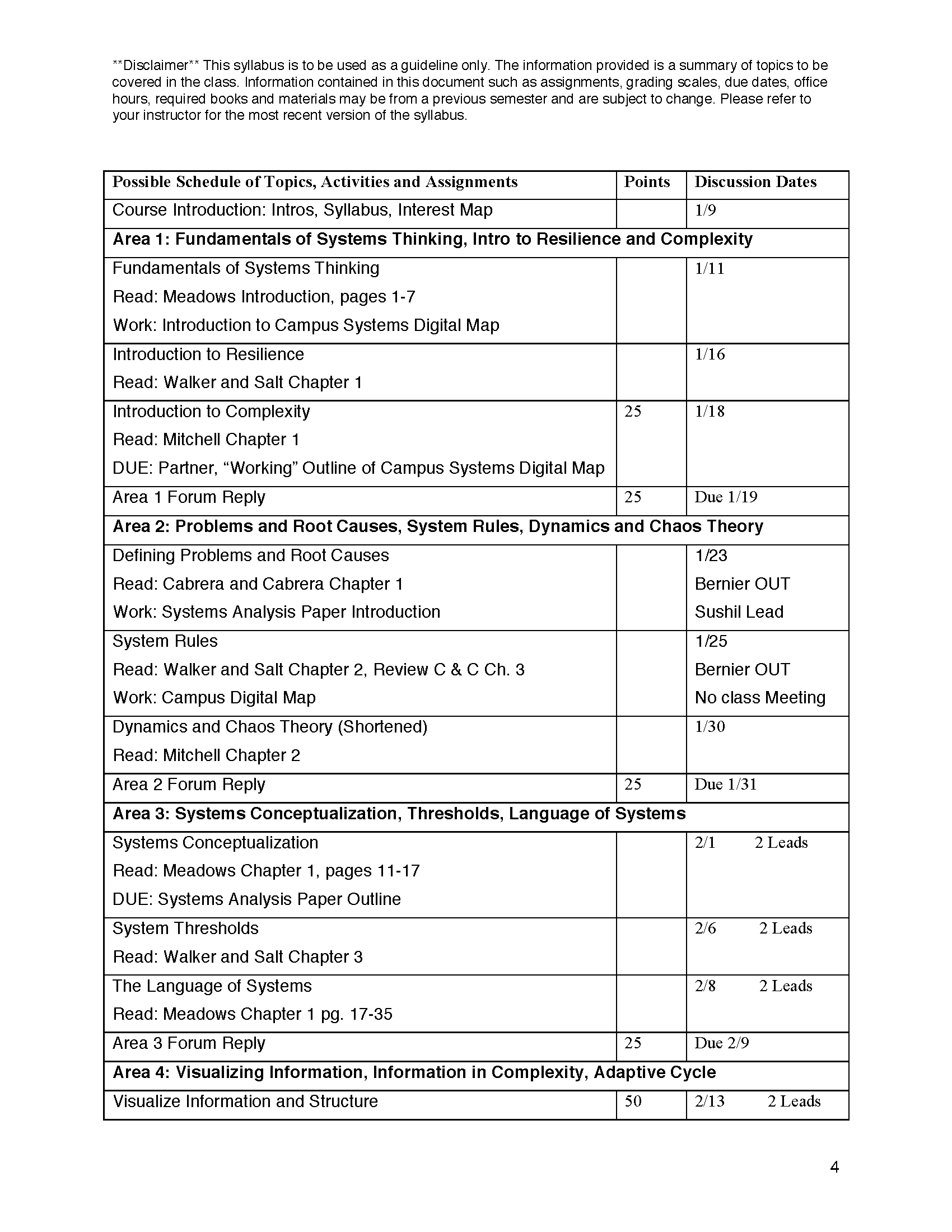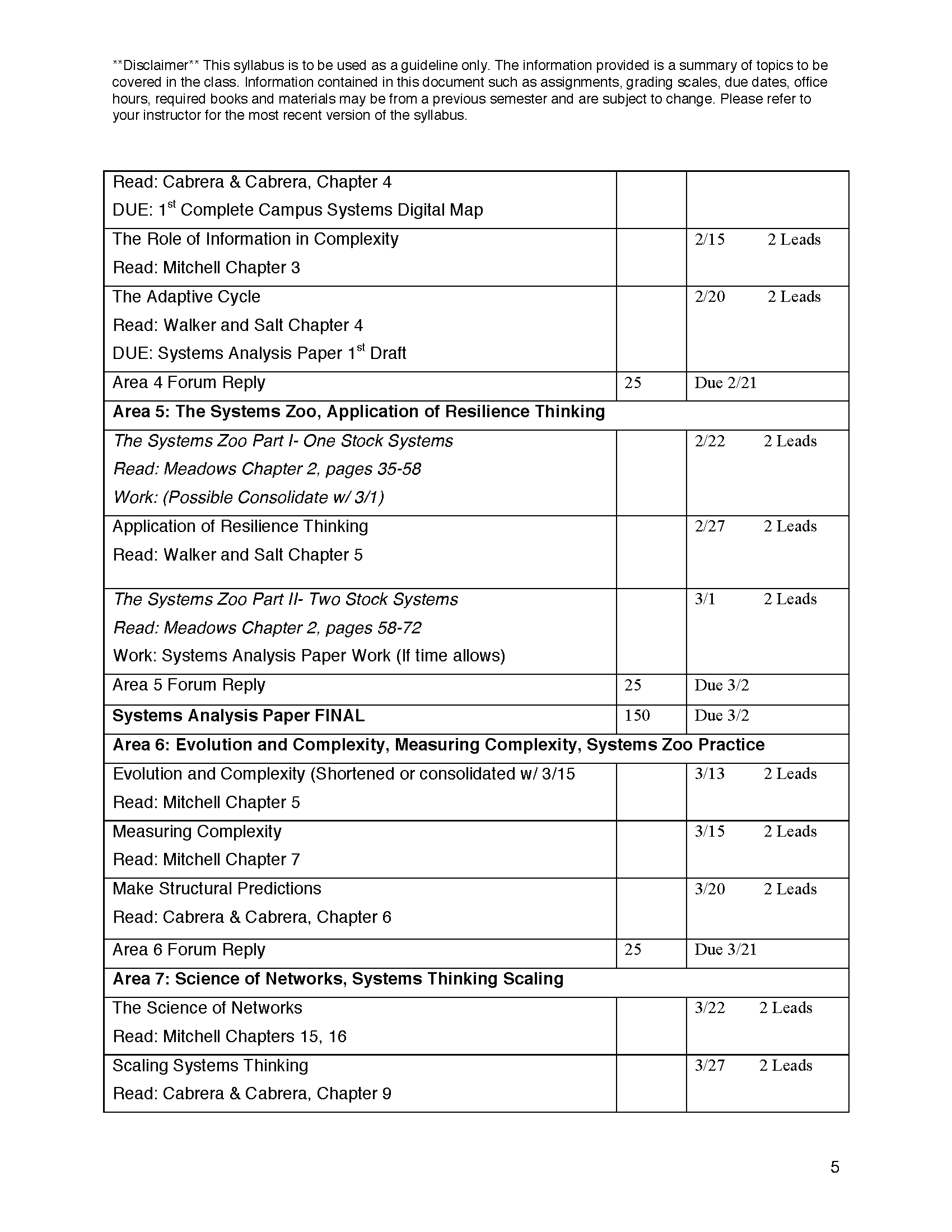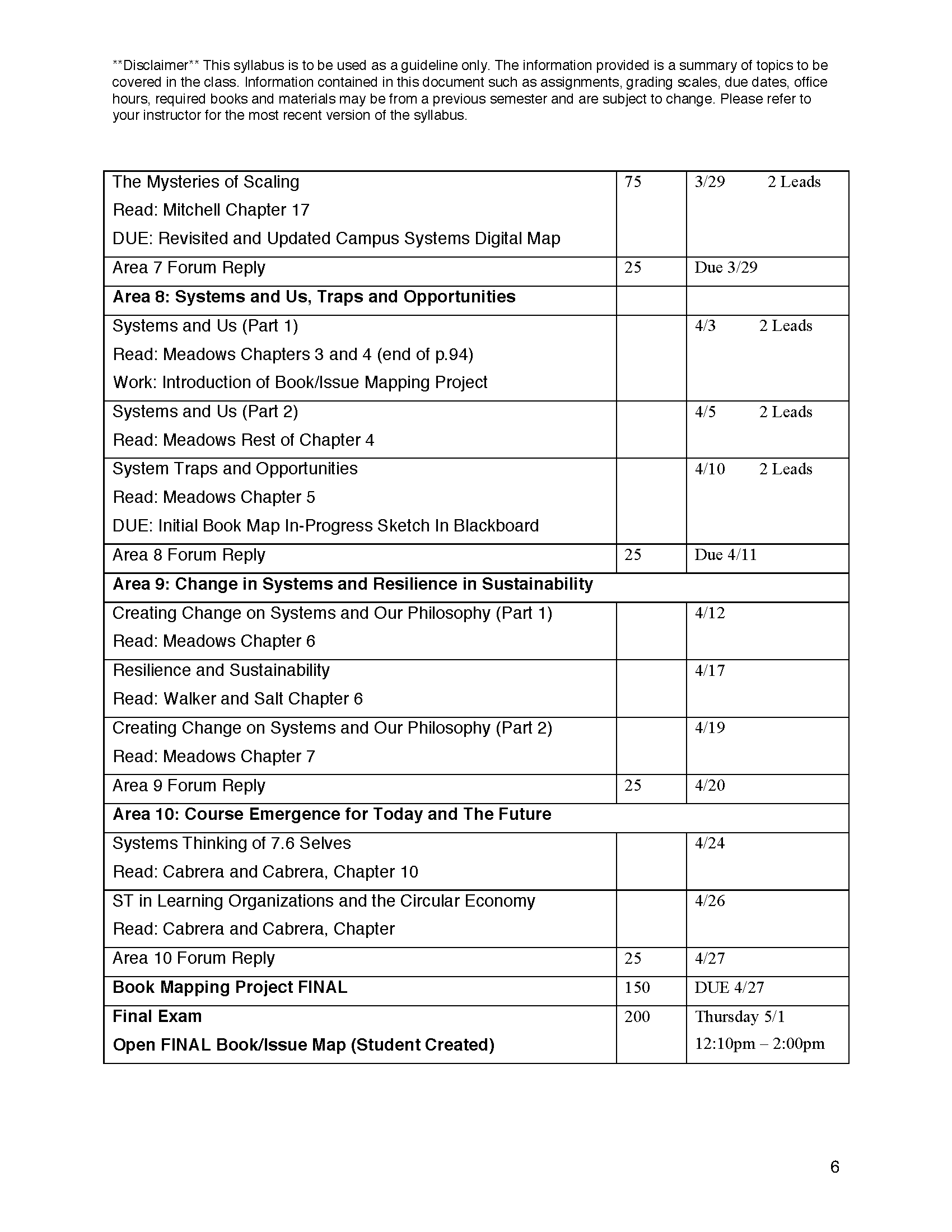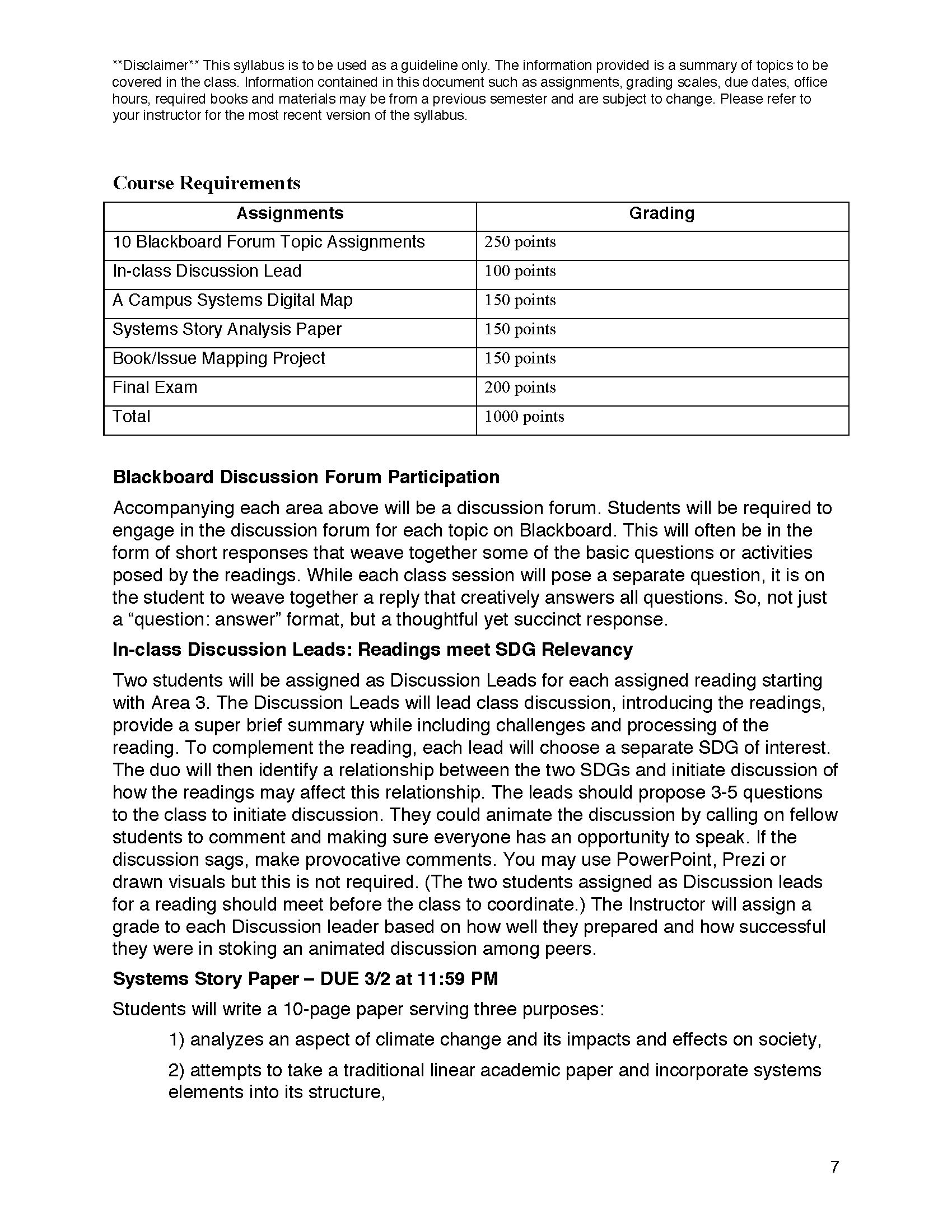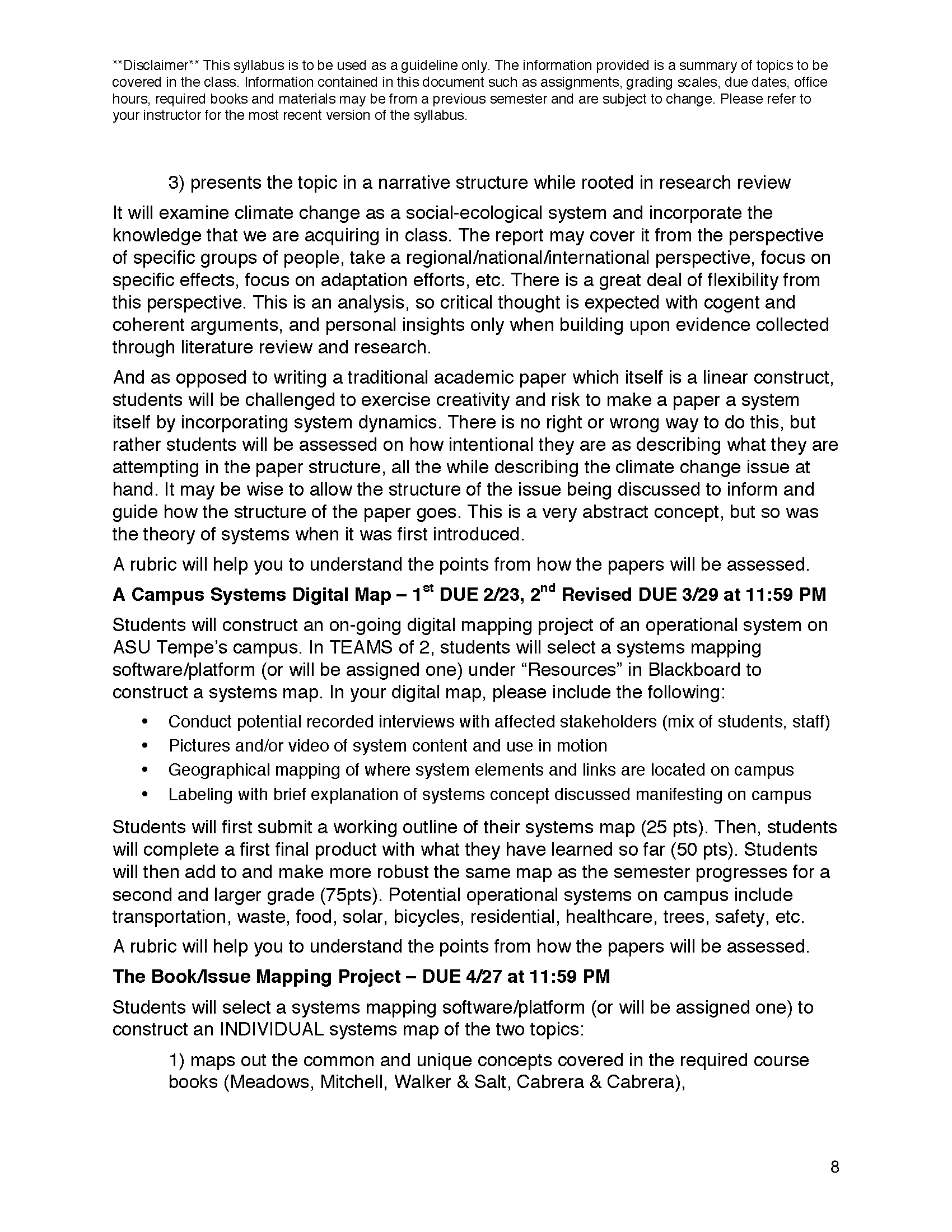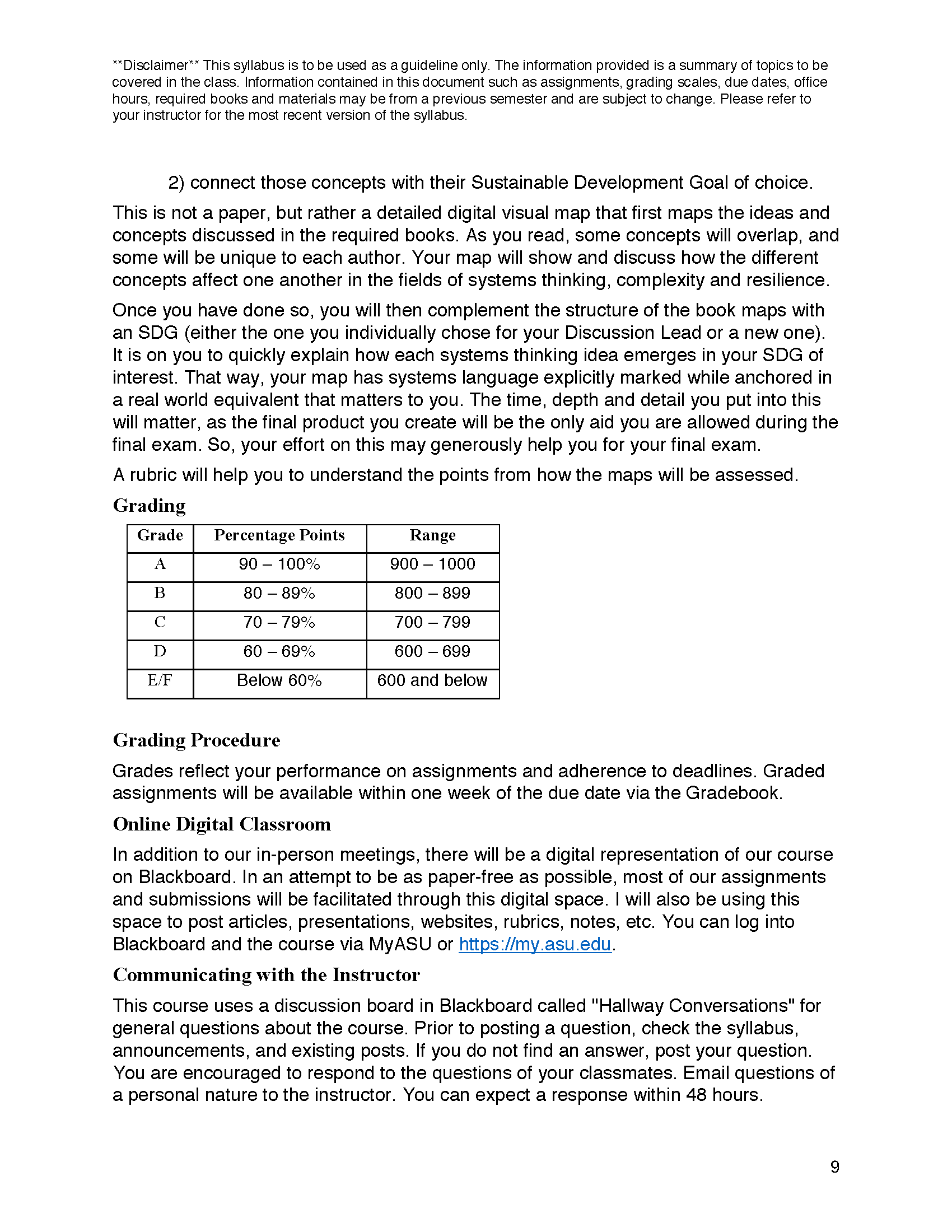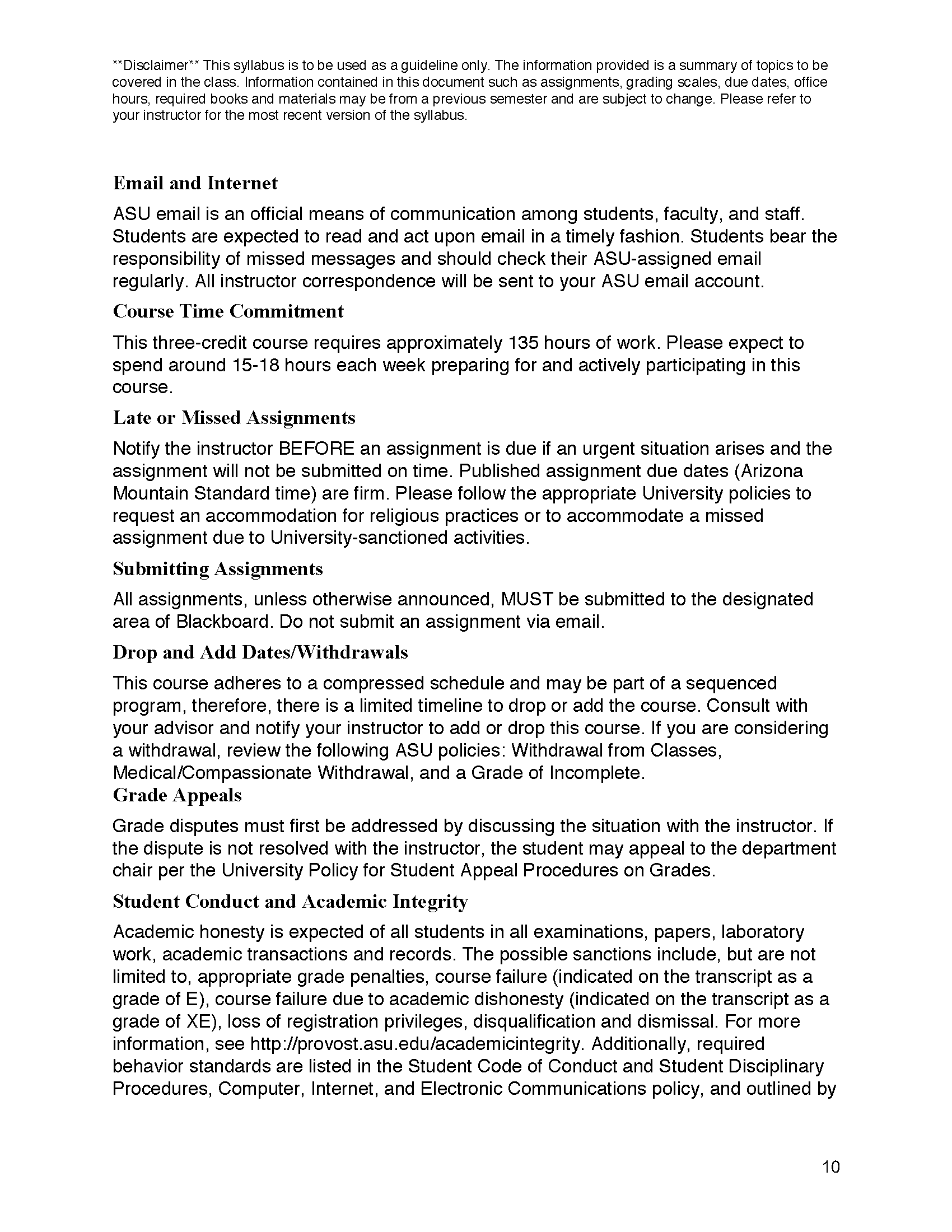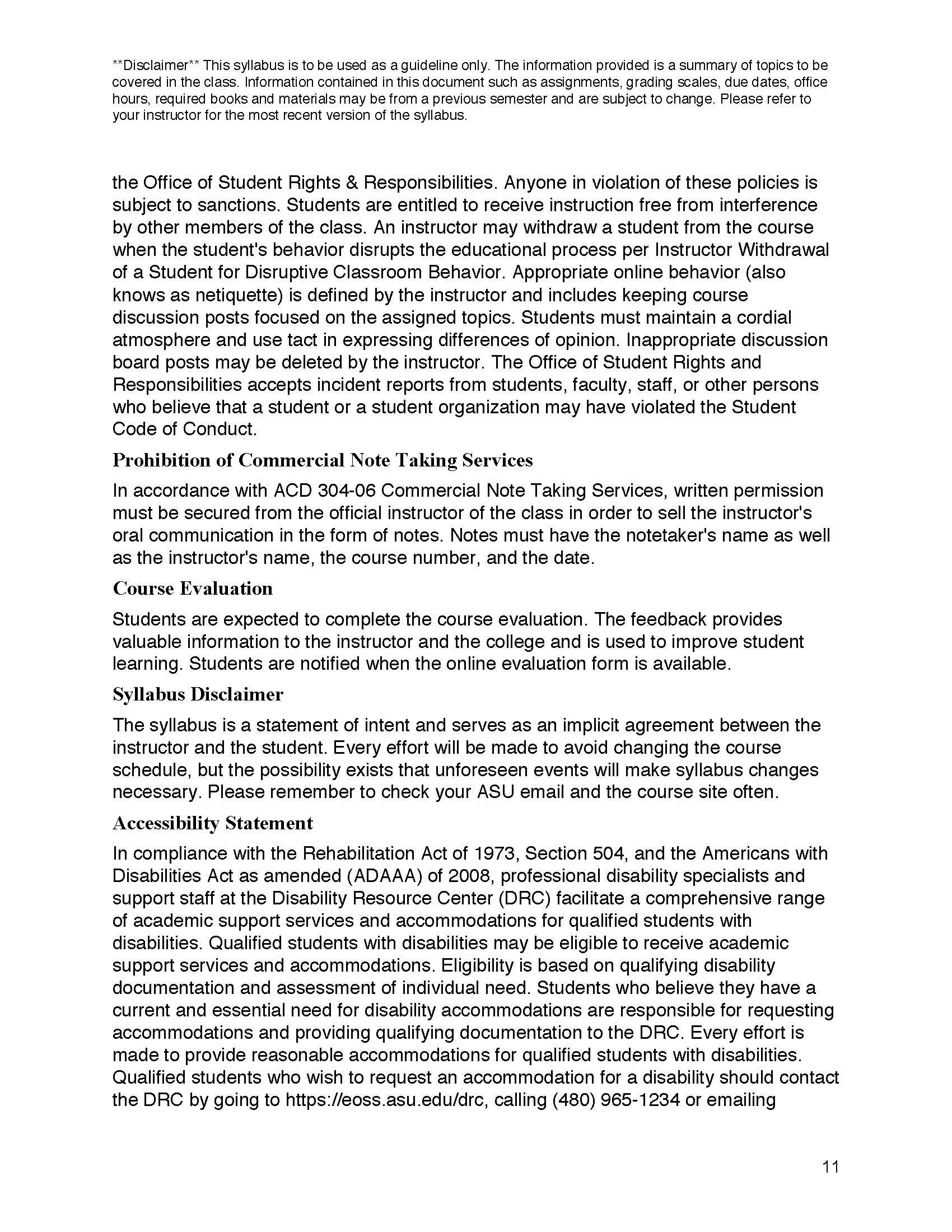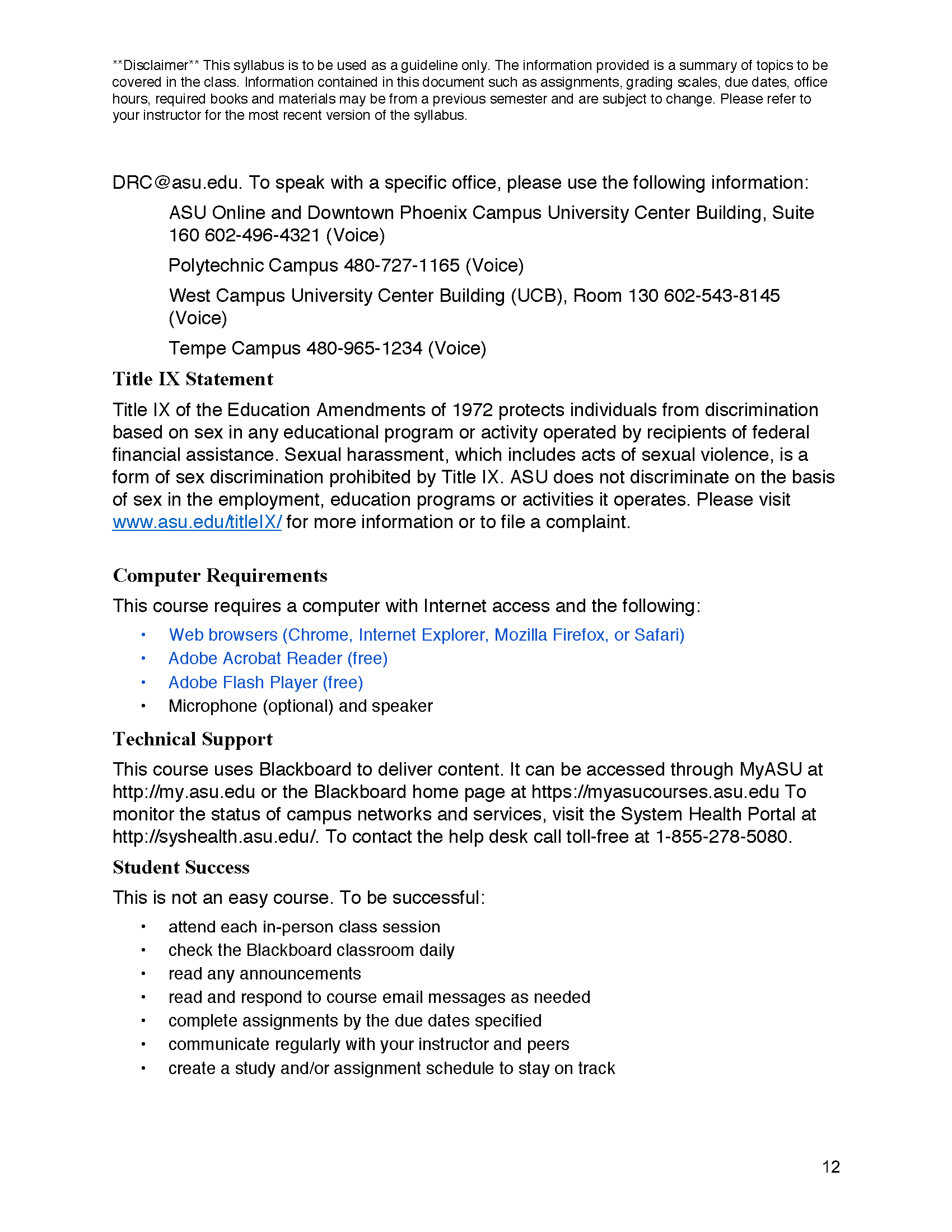Exemplar Type: COURSE
Title: Global Solutions for Sustainable Living
Grades: Teachers, Undergraduate and Graduate Students
Discipline: Interdisciplinary
Submitted By: Tricia Spencer, Design for Environment 40
Course Description
“Global Solutions for Sustainable Living” identifies the laws of nature that are inherent in the diverse ecosystems that comprise and sustain life on earth. The air we breathe, the water we drink, the energy we need to sustain ourselves, the food we eat and the buildings we live in are all parts of that system. Our goal in this course is to identify the critical environmental issues that we face in each of these areas: Ecosystems, Architecture and the Built Environment, Air, Water, Renewable Energy & Agroecology.
Global Solutions for Sustainable Living: Ecosystems
Ecosystems represent the interaction of how the laws of nature work within a specific geographic area. These laws of nature express a unique collection of relationships as energy moves and expands throughout the system creating a rich mixture of biodiversity. These diverse systems support all life on earth; the buildings where we live and work, the air we breathe, critical water resources, energy and the food we eat. Ecosystems contain biotic or living, parts, as well as abiotic factors, or nonliving parts. Biotic factors include plants, animals, and other organisms.
Abiotic factors include rocks, temperature, and humidity. The laws of nature that make up the diverse ecosystems on earth are connected and provide the transfer of energy from one system to another in a larger biome. Biomes are large sections of land, sea, or atmosphere. Forests, ponds, reefs, and tundra are all types of biomes that manifest specific laws of nature that are expressed in the flow of energy from one system to another and are connected that make life on Earth possible. - Tricia Spencer, Research and Education Fellow, San Francisco Institute of Architecture
Resources
The Guardian | Our Biggest Challenge? Lack of Imagination (Green Valleys)
United Nations University | The True Value of Ecosystem Services
Topic Questions
How are nature based solutions being applied to restore global ecosystems?
What services do ecosystems provide to support human life on earth?
How have ocean ecosystems been affected by global warming?
How has the degradation and alteration of natural law within Earth’s ecosystems affected global equality?
How can nature based solutions be employed to combat the degradation of ecosystems?
Why is it important to maintain biodiversity in ecosystems?
Project and Action Plan
Determine the type of ecosystem where you live. Identify the services that ecosystem provides. Develop a plan to educate those living in your area of the value of that systems in order to restore biodiversity in your area.
Design a plan to connect existing green spaces in your neighborhood, city, county, prefect or state where you live for a rewilding project. Work with local or state conservations specialists on best methods to establish native species within the corridor.
Identify the ecosystem where you live and develop a plan to present to local city officials requiring effective land-use planning and development to protect natural systems within your local ecosystem.
BENCHMARKS REPRESENTED IN THIS EXEMPLAR
Big Ideas
A healthy and sustainable future for human and other life is possible
Adaptability helps all living things (including humans) survive (even thrive) over time
Creativity (the generation of new forms) is a key property of all living systems and contributes to nature's ability to sustain life
Humans are dependent on Earth's life-support systems
Diversity makes complex life possible. It assures resilience in living systems
Everything must go somewhere because there is no such place as "away". Matter and energy do not appear or disappear. They cannot be created or destroyed. In a healthy community, one species' waste is another species' food
All systems have limits. Healthy systems live within their limits. Tap the power of limits
Life organizes towards life. Life contributes to its own regenerative capacity, and so far, .1% of all the species that have existed on Earth have prevailed.
Places are alive, unique and evolving. If humans want to flourish over time, our relationships with the places in which we live must be mutually beneficial
There is an appropriate rate and scale for every living thing and they may not be the same in every circumstance
Change is inevitable. Life is dynamic and living systems develop or they die
We are all in this together: We are interdependent on each other and on the natural systems
Nature sustains life by creating and nurturing communities
A sustainable solution solves more than one problem at a time and minimizes the creation of new problems
Treating symptoms makes them worse over time, creates new problems and doesn't address the fundamental problem. Create change at the source not the symptom
Every system is perfectly formed to get the results it gets
The changes to the Earth's surface environments made by human activity are causing unintended consequences on the health and well-being of human and other life on Earth (proposed Anthropocene Epoch)
The significant problems we face can't be solved with the same thinking we used to create them. Our prior experiences with the world create cognitive frameworks (also known as mental models/maps) that inform what we can perceive. They shape our behavior and our behavior causes results. If we want to produce different results, it all begins with a change in thinking
There is no beginning or end in a system. Intervene where there are favorable conditions, i.e., where and when possible
Sustain-ability requires individual and social learning and community practice
We all depend on and are responsible for "the commons", i.e., what we share and hold in trust for future generations. Recognize and Protect the Commons
Applied Knowledge and Actions
Laws and Principles that govern the physical and biological world
Cultures, Traditions, and Change
The Many Ways of Knowing
System Dynamics and Change
Responsible Local and Global Citizenship
Multiple Perspectives
Higher Order Thinking Skills
Anticipatory: Futures Thinking
Emergent: Creative Thinking
Emergent: Design Thinking
Emergent: Ecological Design
Emergent: Regenerative Design
Complex: Critical Thinking
Complex: [Living] Systems Thinking
Mindful: Questioning
Dispositions
Courageous
Curious
Efficacious
Humble
Imaginative
Open Minded
Persevering
Compassionate
Empathetic
Ethical
Place/Community Conscious
Respectful
Responsible
Applications and Actions
Create Social Learning Communities
Engage in Dialogue
Engage in Role-Playing, Learning Journeys, Simulations & Games
Plan Scenarios
Accept responsibility for the consequences of design
Apply technology appropriately so that today's solutions don't become tomorrow's problems
Contribute to the regenerative capacity of the systems upon which we depend
Count and value all the capital (natural, financial, human and social)
Design for whole systems integrity with ecological principles and physical laws in mind
Design to optimize health and adaptability
Design with efficiency and effectiveness for a no waste world that runs off of clean and renewable energy, contributes to diversity, recognizes inter-dependencies and taps the power of limits
Tap the power of limits and use constraints to drive creativity
Empower people and groups
Envision, strategize and plan
Evolve the rules when necessary
Govern from the bottom up
Make the least change for the greatest effect
Relentlessly adjust to the here and now with the future in mind
Take responsibility for the difference you make
Trust local wisdom
Leave every place better than you found it
Be inclusive
Embrace mutually beneficial rights of humanity and nature
Practice justice and equity for all
Take responsibility for the effect you have on future generations
Create and maintain highly functional and successful teams
Hands On Skills
Hands On Skills: Use and creation of appropriate technology to the place and culture in which you find yourself
Hands On Skills: Cartography (mapping, geo-spatial, geographic)
Hands On Skills: Design/Drawing
Hands On Skills: Gardening/Farming (organic, permaculture/bio-dynamic, integrated pest management)
Community Connections
Develop sustainable community visions and re-visions over time
Map community assets and conduct needs assessments
Develop, measure and monitor SMART (specific, measurable, achievable, realistic & time bound) goals and sustainable community indicator sets. Schools data is embedded in social, ecological and economic indicator sets
Evaluate progress (read the feedback), reflect, adjust, and continually improve performance
School buildings and grounds serve the whole community as learning hubs for continuing education of individuals as well as school and community stakeholders to learn together for the future they want
School buildings and grounds serve the whole community as places to celebrate
Provide Internships for students



